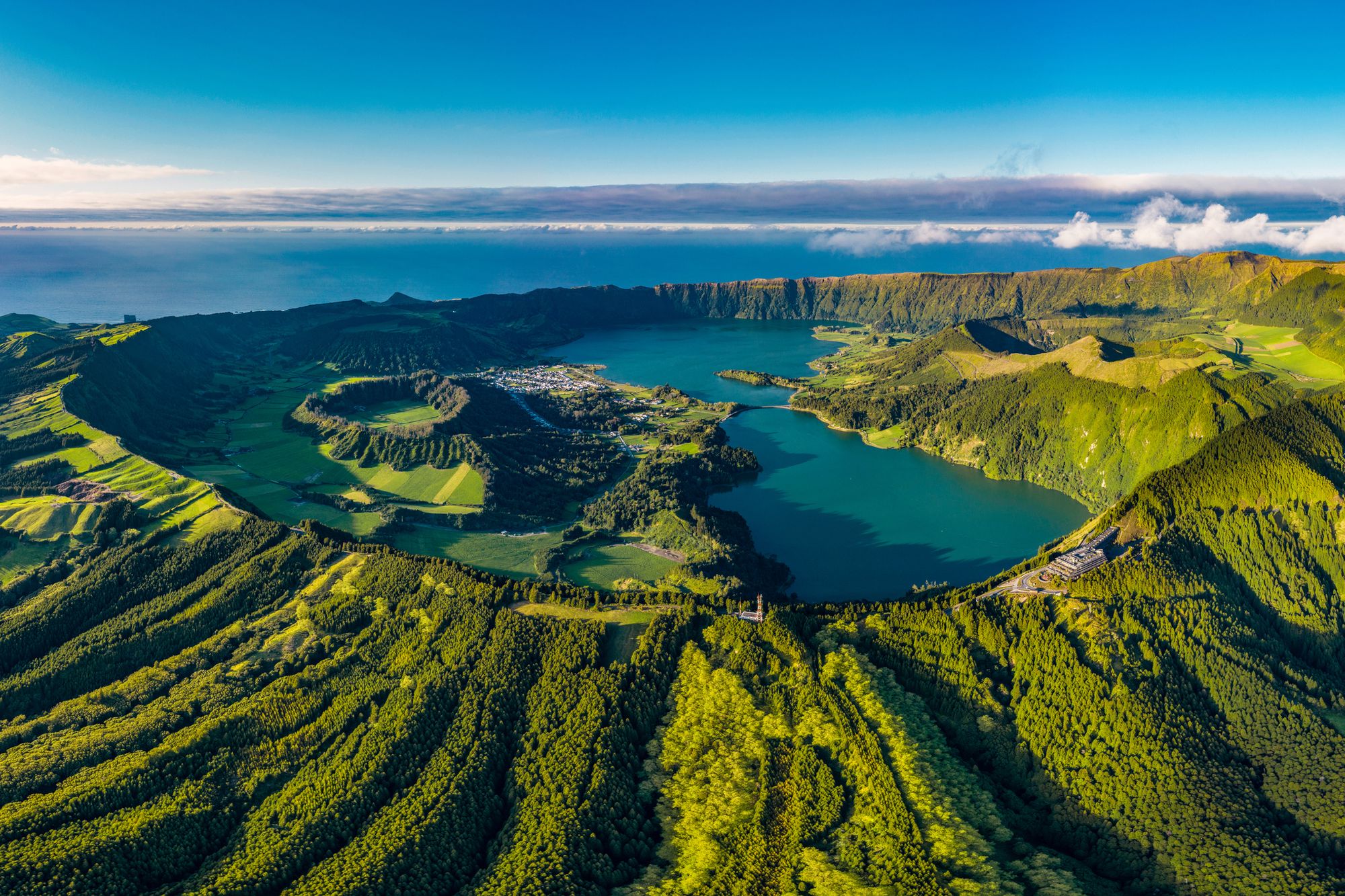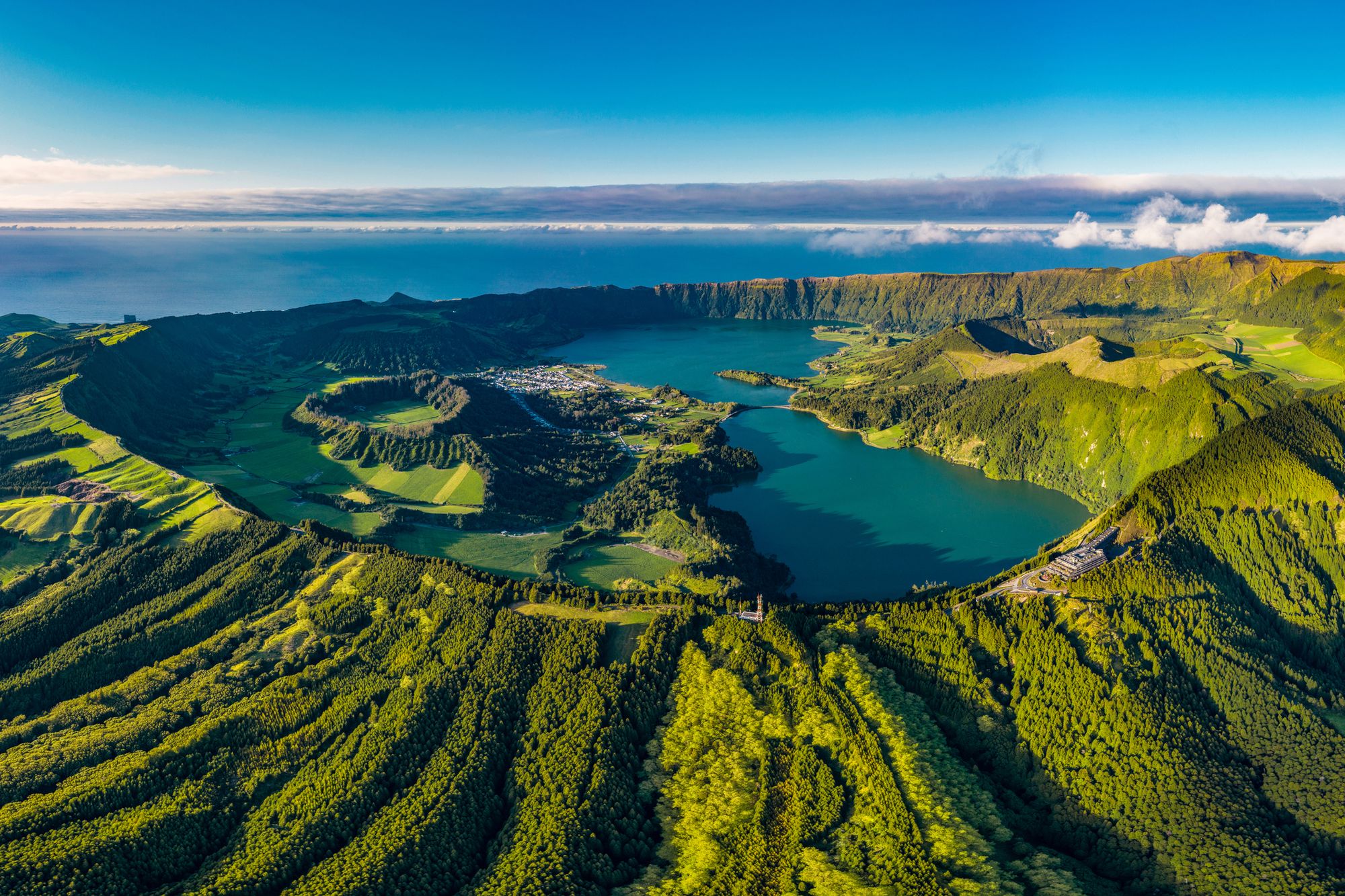
July is the height of summer and the month that many think of when they think of "the holidays". This is the time when the sun is up over Europe, the days are long and warm and conditions are often ideal for climbing mountains.
Picture yourself hiking on alpine trails lined by colourful flowers, with sunshine hitting your face. Imagine an Alaskan scene, with bears fishing along gushing rivers, or put yourself on or in the water - kayaking in mangroves near Rio de Janeiro or wild swimming in secret coves or in the open water of Crete.
Explore the Azores, hike over glaciers on Svalbard, watching for polar bears in the midnight sun or trek to ancient monasteries in the high mountains of Armenia...
Of course, the fact that July is such a good travel month means that it also tends to be one of the busiest ones. In popular areas, you can expect to find crowds, and in particularly popular destinations, that can lead to overcrowding and an experience which isn't exactly great - neither for the traveller nor the area's locals.
With that in mind, in this list, we've tried to highlight outstanding destinations which are either lesser-visited in July, or that are further off the radar of most travellers in general. Tourism should have a positive impact for both people and place, and if you travel smart, you can contribute to that, while out on your trip.
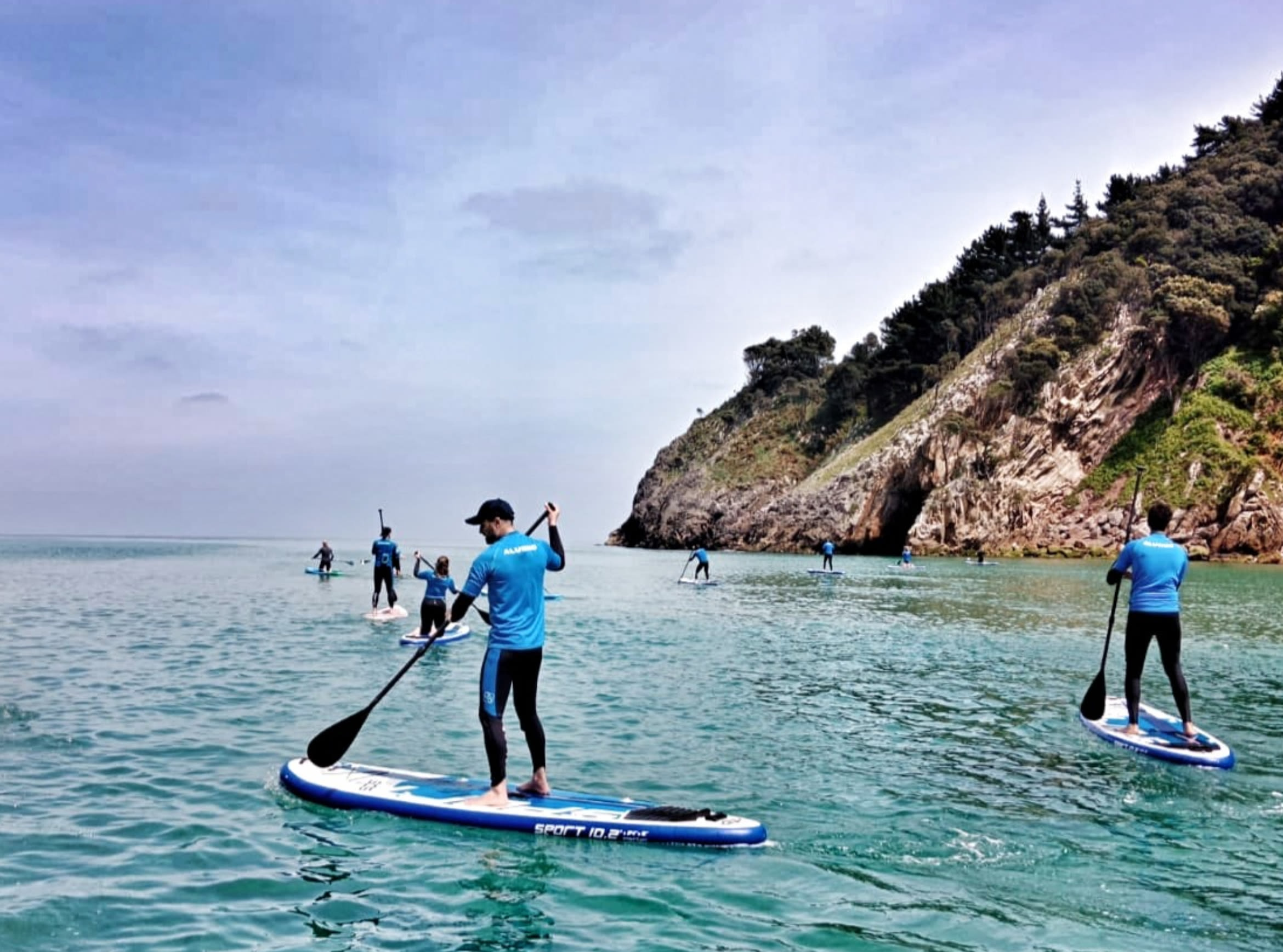
Explore the Azores, hike over glaciers on Svalbard, watching for polar bears in the midnight sun or trek to ancient monasteries in the high mountains of Armenia.
Here are the best travel destinations to visit in July - for a summer adventure.
1. The Azores, Portugal
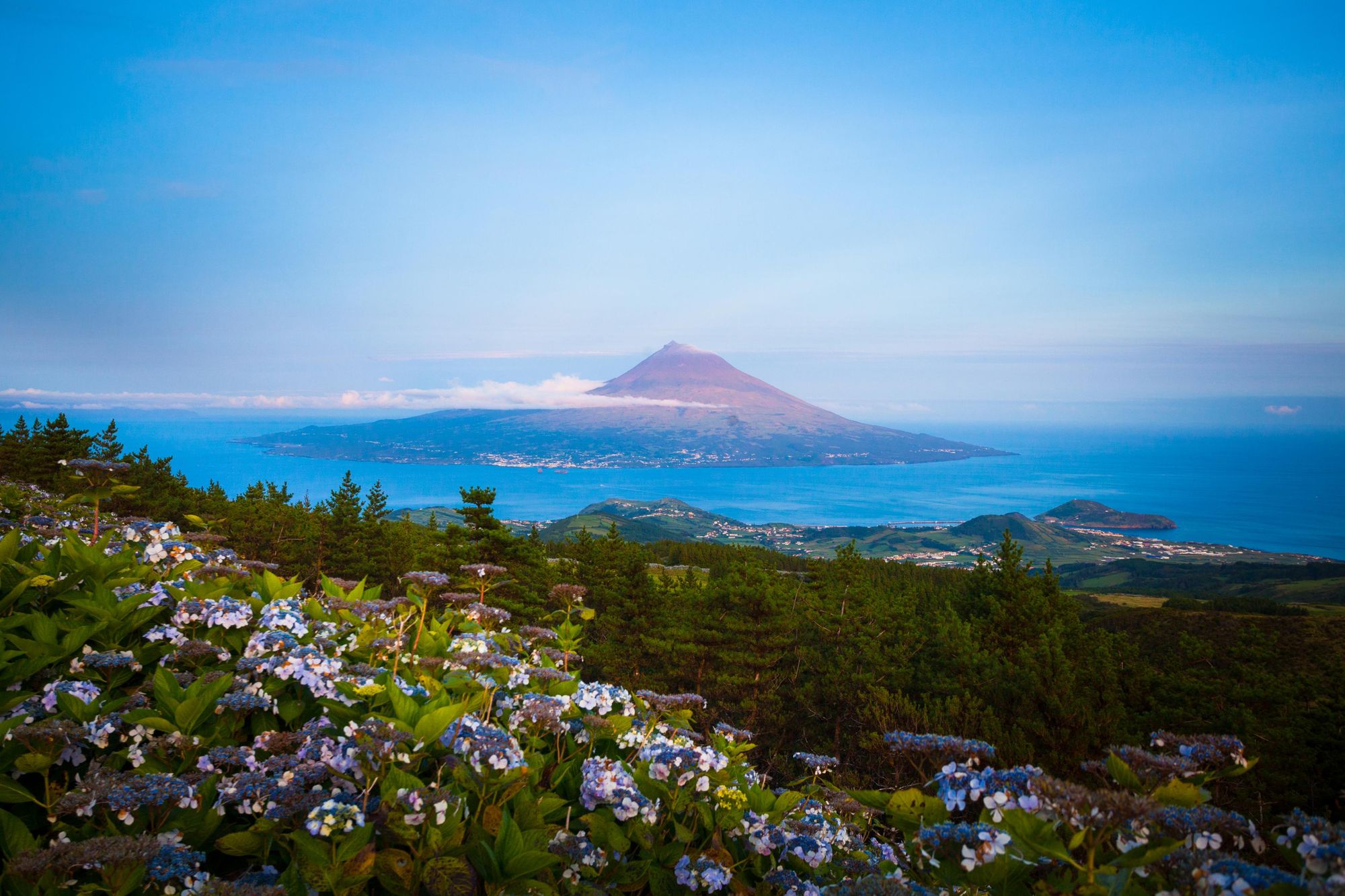
- Season: Summer
- Temperature: 25°C high, 17°C low
- Time zone: GMT-1
- Currency: Euro
- Best for: A far-flung European adventure
The Azores, an archipelago of nine islands, are ideal for a July getaway. This is one of the furthest reaches of the European Union, an autonomous region of Portugal, but doesn't see the sort of summer crowding you get in Lisbon, or indeed, on Madeira, which is seeing a boom in popularity. This is a place of volcanic craters, lush green forests, fertile orchards and dramatic Atlantic coastlines. And the Azores is home to excellent range of hiking routes too - well marked, around the islands.
Tackle the highest mountain in all of Portugal, Pico Mountain (2,531m/7,713ft) - on the island of Pico, hike coast to coast on Faial or climb Pico da Vara, a high point on the most populous island of the Azores, São Miguel.
How to Get There? Fly into Ponta Delgada Airport on São Miguel Island.
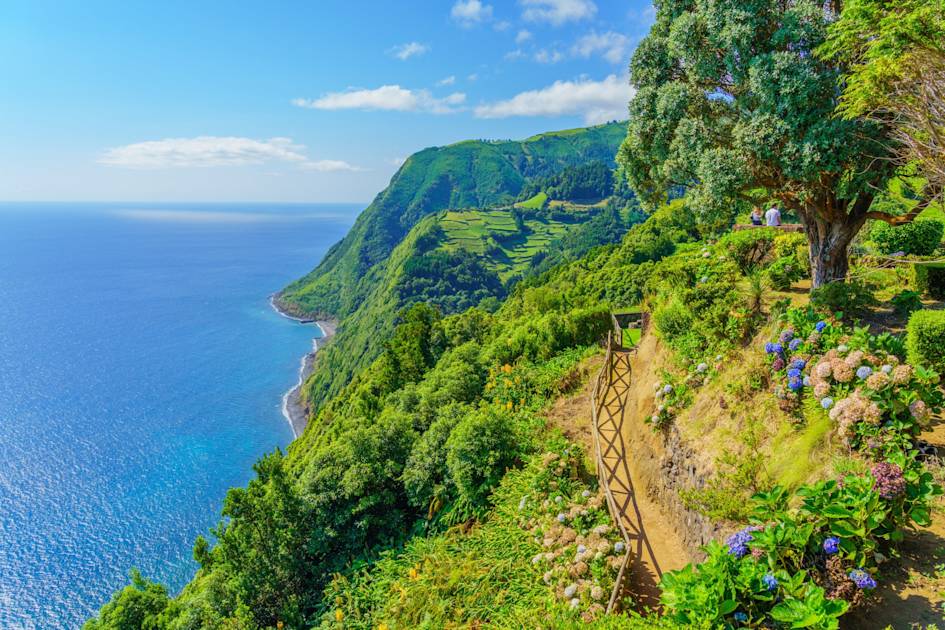
2. The Nærøyfjord, Norway
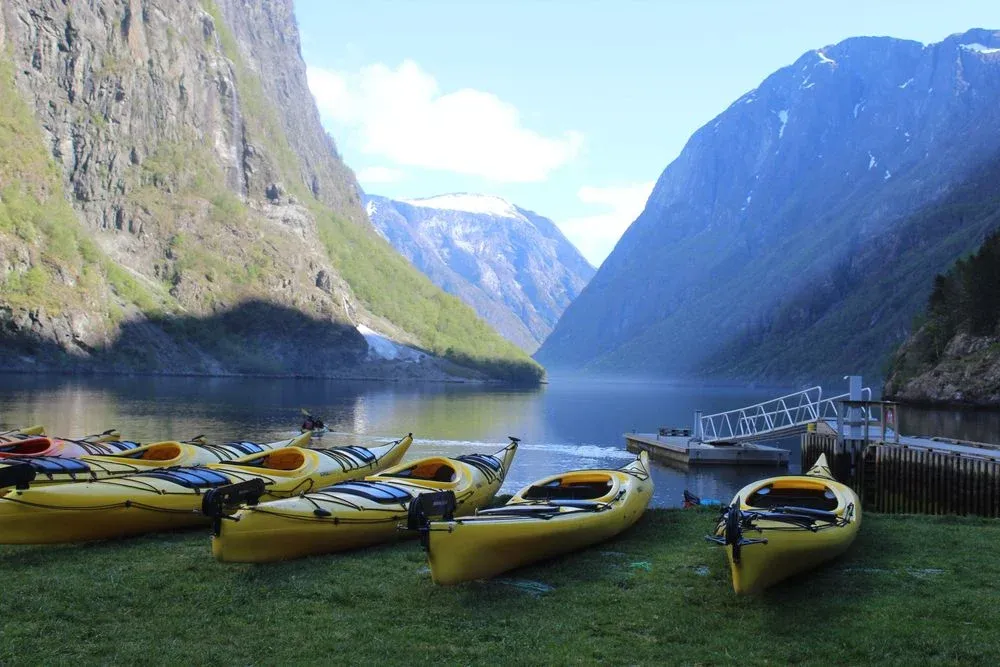
- Season: Summer
- Temperature: 22°C high, 13°C low (for Bergen)
- Time zone: GMT+2
- Currency: Norwegian Krone
- Best for: Paddling perfection
I'll never forget the first few paddle strokes I took in the Norwegian fjords. This is a place preceded by its beauty. To see it - these high rock walls that make you feel so small, and to move slowly along the isolated, narrow body of water that weaves through it - is to realise that, somehow, the fjords exceed even the best descriptions of their wonder.
Launch from Gudvangen (God's Meadow) on the Nærøyfjord...
"The best way to see the fjords is definitely by kayak," I recall my guide, Jan, saying. It's not just about the fact you're in control of your own vessel, outside and so close to the water. It's also about the many cruise ships that come to the fjords. Particularly in July, there are a lot of these. But in a kayak, you can go places they can't. Launch from Gudvangen (God's Meadow) on the Nærøyfjord, and you experience this place in relative silence, during the height of summer.
How to Get There? Fly to Bergen, Norway. Gudvangen is a two-hour drive from there.

3. Cusco, Peru
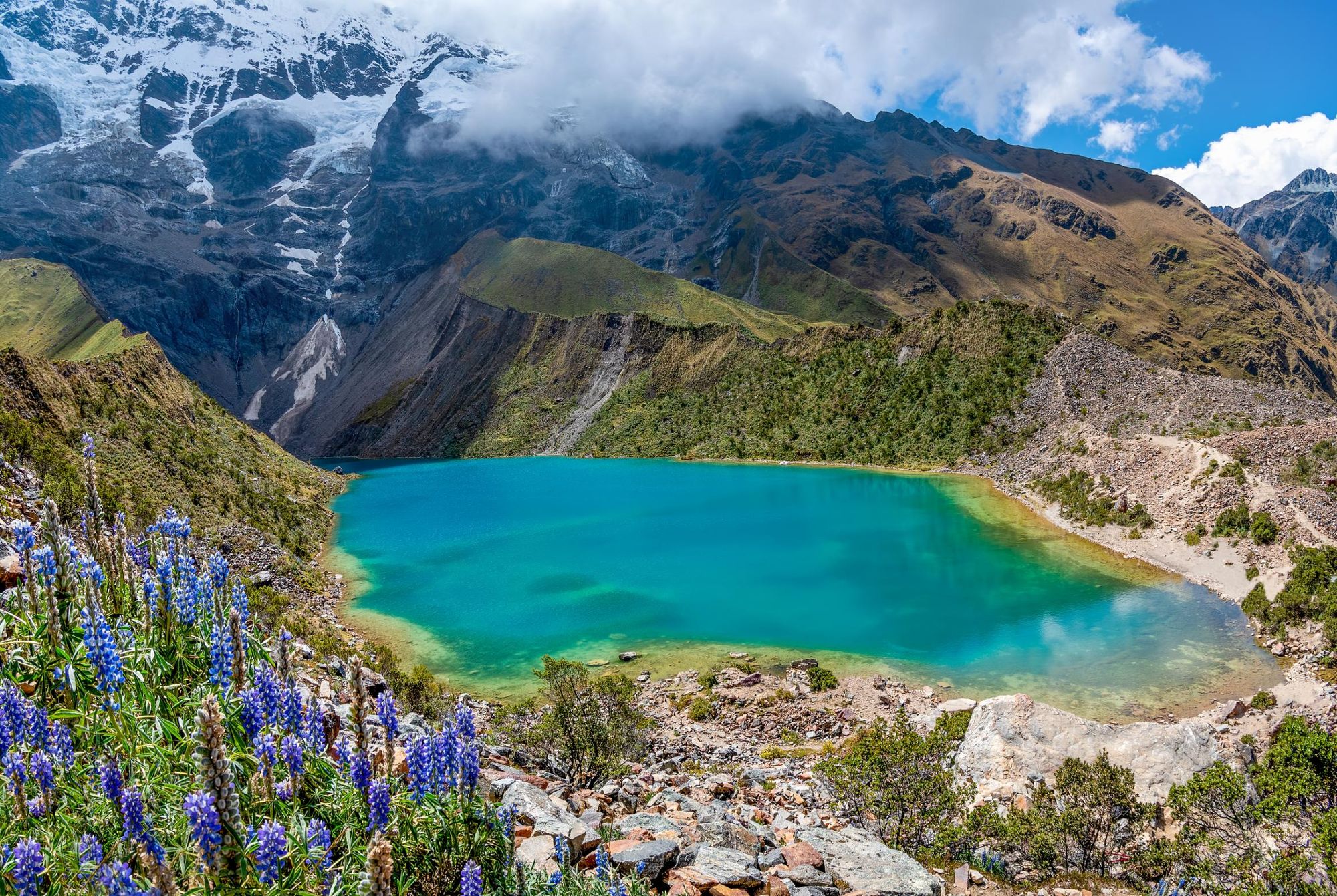
- Season: Dry season
- Temperature: 19°C high, 2°C low
- Time zone: GMT-5
- Currency: Peruvian Sol
- Best for: Inca interest
Machu Picchu is a legendary site of ancient Inca heritage. It's a spot where you can stand, surrounded by dramatic, enormous mountains and truly imagine another time and way of life to what we know today. In July, the weather it at its best for visiting this legendary site. But the country is also at its busiest. That's why we would recommend looking for different ways to access Machu Picchu.
Extend your visit by taking on the demanding, but much lesser-trodden multi-day trek to Choquequirao first, or rather than opting for the Inca Trail, look at the Salkantay route up to Machu Picchu, which features stunning lakes, such as the one pictured above, found between Humantay Mountain and Salkantay Mountain.
How to Get There? Fly to Cusco Airport to start your adventure.
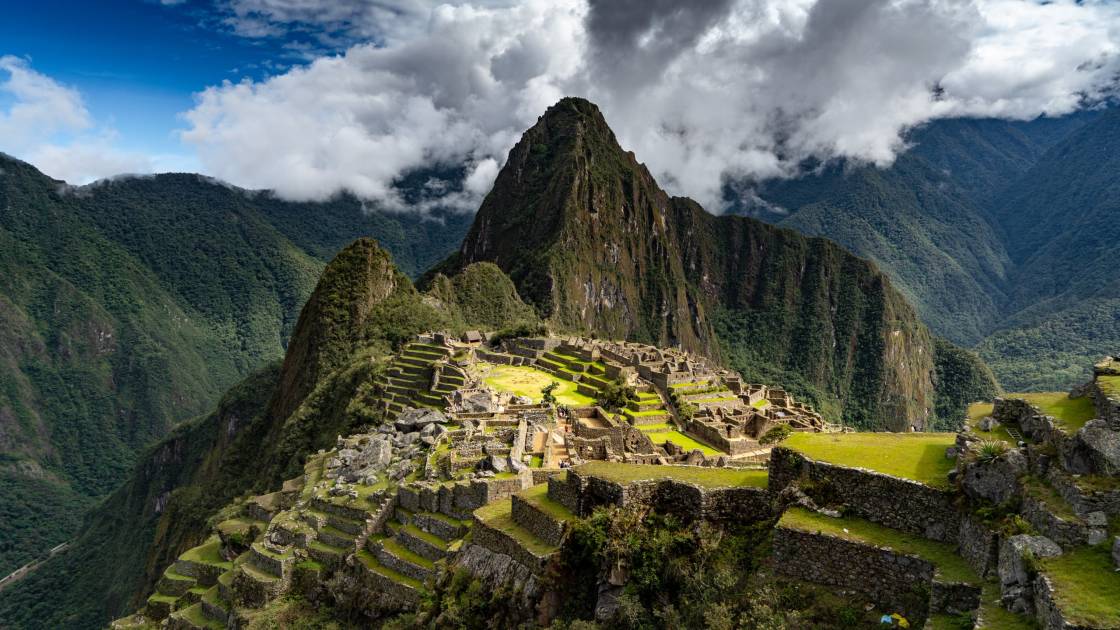
4. The Rocky Mountains, Canada
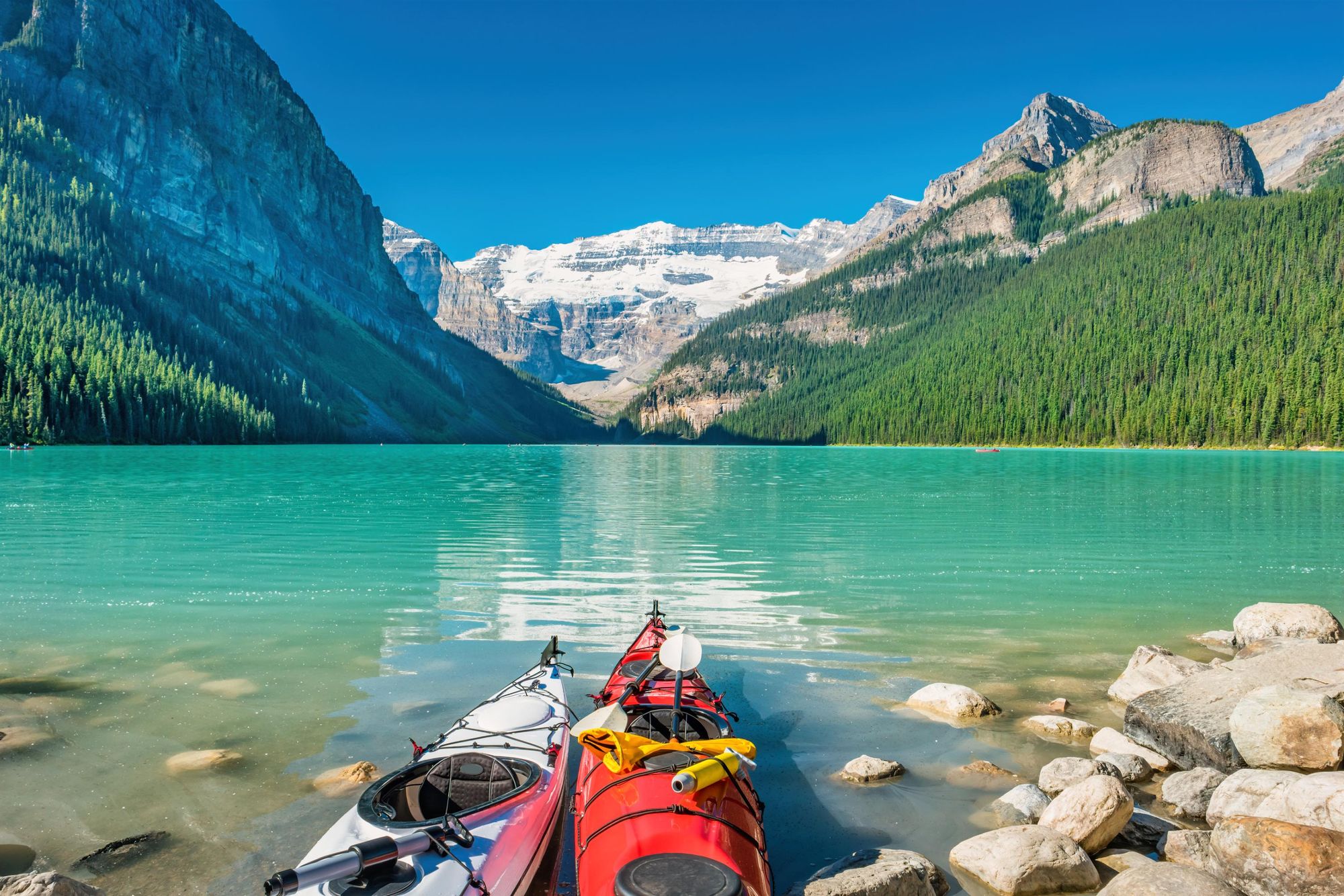
- Season: Summer
- Temperature: 22°C high, 7°C low
- Time zone: GMT-6
- Currency: Canadian Dollar
- Best for: Picture perfect mountain views
The Canadian Rockies are a place of beauty, serenity and dreams for most outdoor enthusiasts in the English-speaking world. Names like Banff, Jasper and Lake Louise conjur up images of sparkling, turquoise lakes beneath mountains sprinkled with snow and rising sharply out of the water. There are legendary views - from the peak of Mount Fairview to out over Sentinel Pass, and down to Maligne Lake from the top of the Bald Hills in Jasper National Park.
Well, the rumours are true. These wild places are stunning. It will be busy here at this time of year, and you should book in advance, but as crazy as it may sound to those who love solitude, we get that can also be a comfort for those who want to explore the wild, but have less confidence doing so. In July, the days are long and sunny, Moraine Lake is accessible, the lakes are bright blue and if you go on July 1, you can celebrate Canada day too.
How to Get There? Fly into Calgary International Airport in Alberta. From here, it’s roughly four hours of driving. Others fly into Vancouver, but this is further.
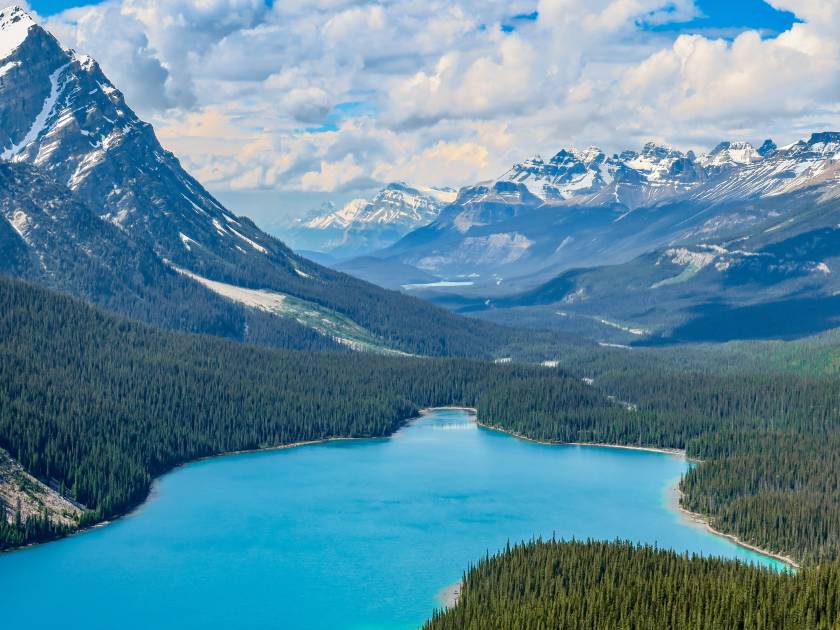
5. The Volcanoes of Guatemala
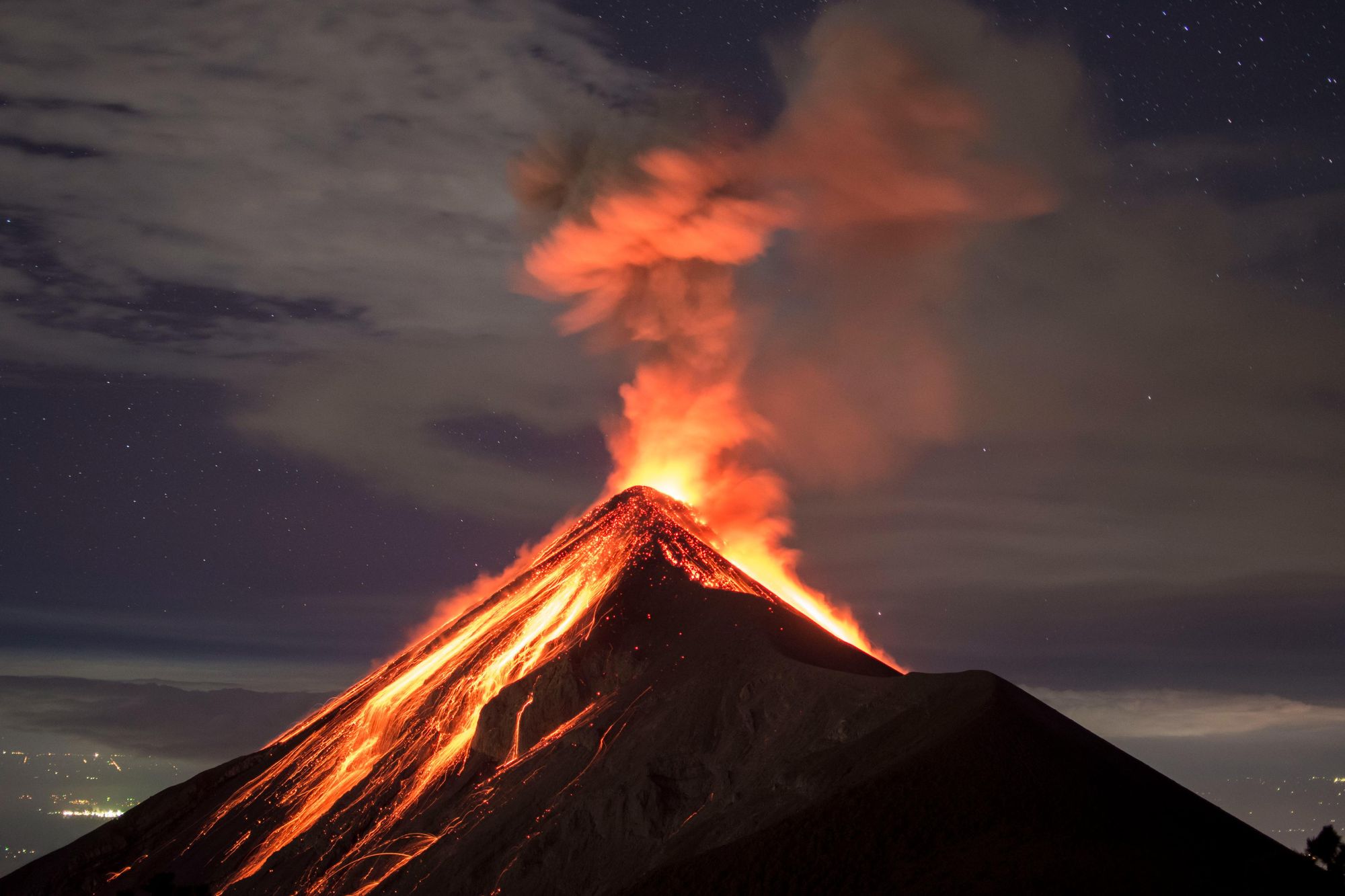
- Season: Rainy season
- Temperature: 27°C high, 16°C low
- Time zone: GMT-6
- Currency: Guatemalan Quetzal
- Best for: Camping in view of a volcano
While Europe is basking in sun, the peak season in Guatemala actually runs from November to the end of April. Visit in July, and you'll be visiting in the off-season. Yes, you may see a bit of drizzle, but you'll also see a lot less tourists.
As for Guatemala itself, this is a wild adventure haven; a place where you can camp in sight of erupting volcanoes and a place which people often come back from insiting that they will never see a more beautiful country. Climb Acatenango with a guide and you can pitch your tent around 3,750m (9,022ft) - and watch Volcán de Fuego continuously erupting through the night from 2.5 miles (4km) away.
There are other volcanoes to climb here, but - as we'd hope is obvious - this does come with dangers. Hire a local guide and listen to their expert advice.
How to Get There? Start your adventure by flying to La Aurora International Airport, Guatemala City.
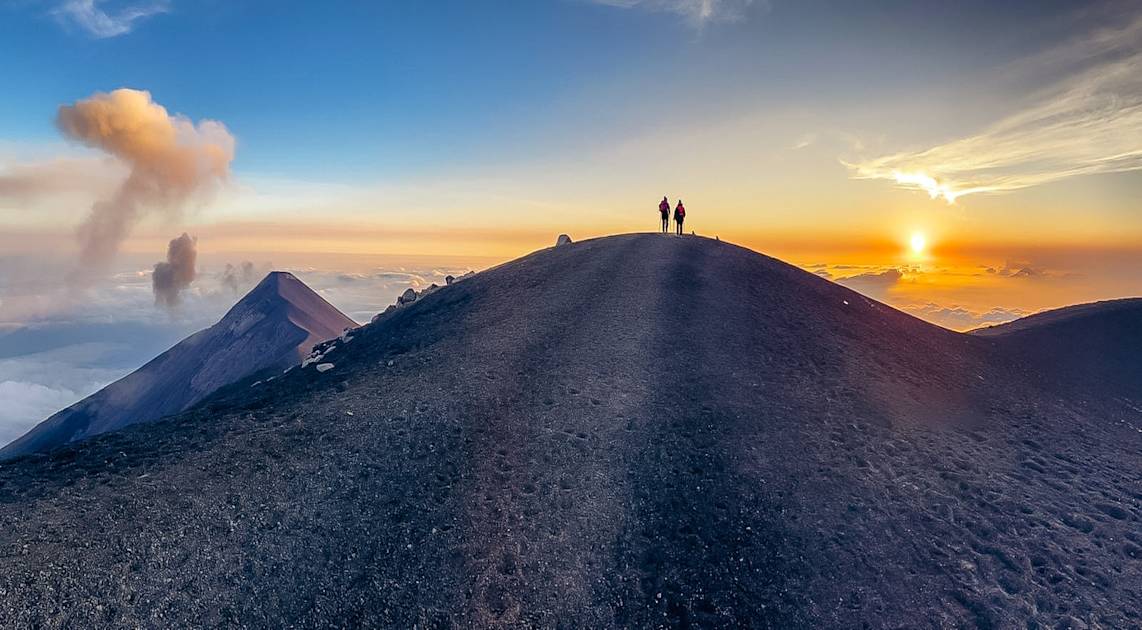
6. Alaska, USA
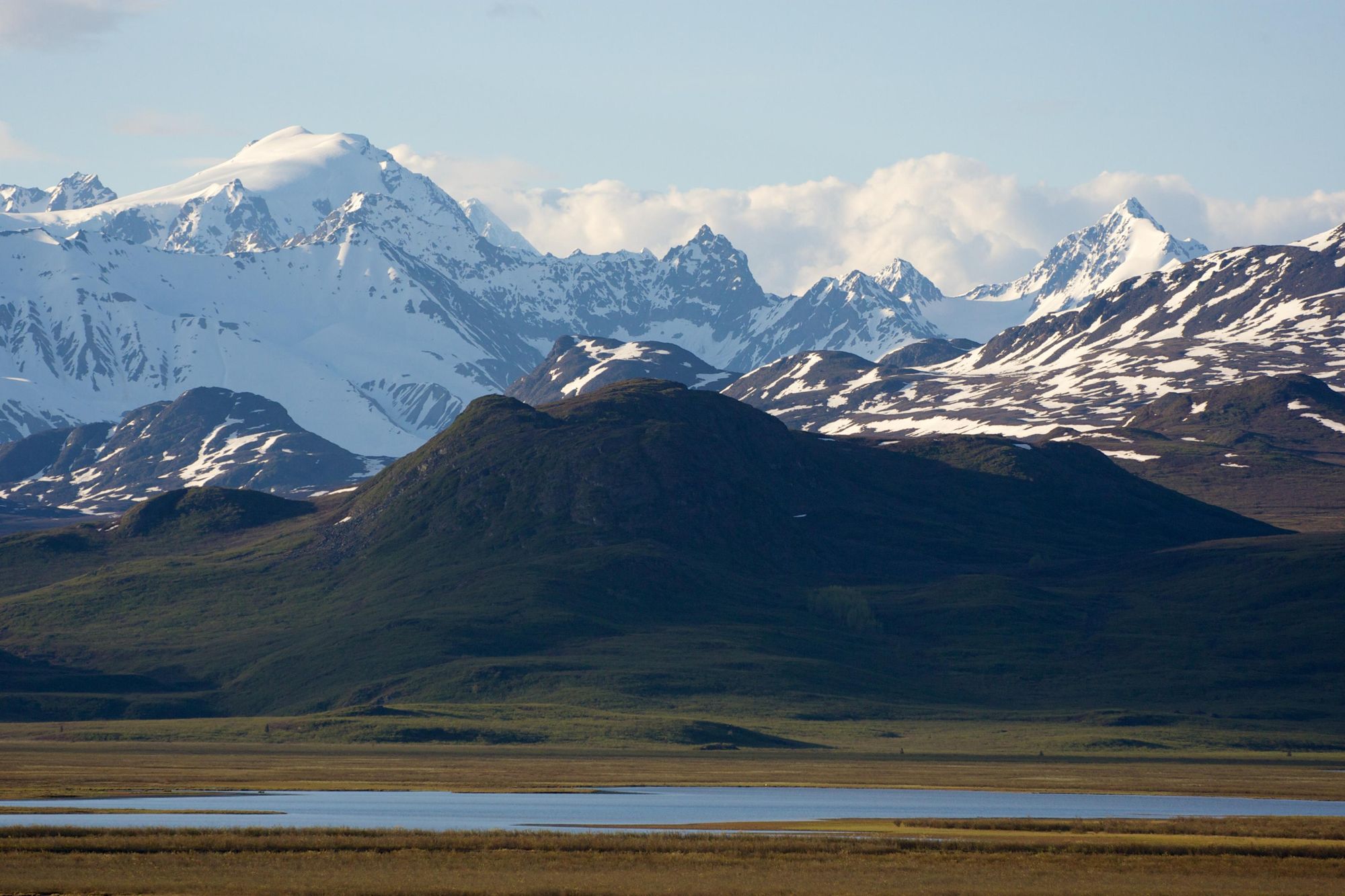
- Season: Summer
- Temperature: 20°C high, 4°C low
- Time zone: GMT-8
- Currency: US Dollar
- Best for: An isolated wildlife experience
Alaska is a vast wilderness home to mountains over 6,000m (19,685ft), sweeping rivers alive with salmon and forests home to moose, black and brown bears and howling wolves. This is a landscape with an ecosystem that is still intact, and moving through a settling like that is a genuinely moving experience in itself.
Visit Denali National Park - home to the eponymous mountain, which is the highest in all of North America - and you can feel the immensity in your body.
You can kayak Alaskan coastline, passing glaciers and waterfalls. You can take a boat up the Maclaren River, and get truly remote within the park, wild camping in the heart of a living, breathing ecosystem, and then hike through it. A local guide is required for this. They'll keep you safe and built out the details of your dream.
You can experience midnight sun here, where night never truly takes hold.
How to Get There? Fly into Anchorage International Airport to start your Alaskan adventure.

7. Trek the Camino de Costa Rica
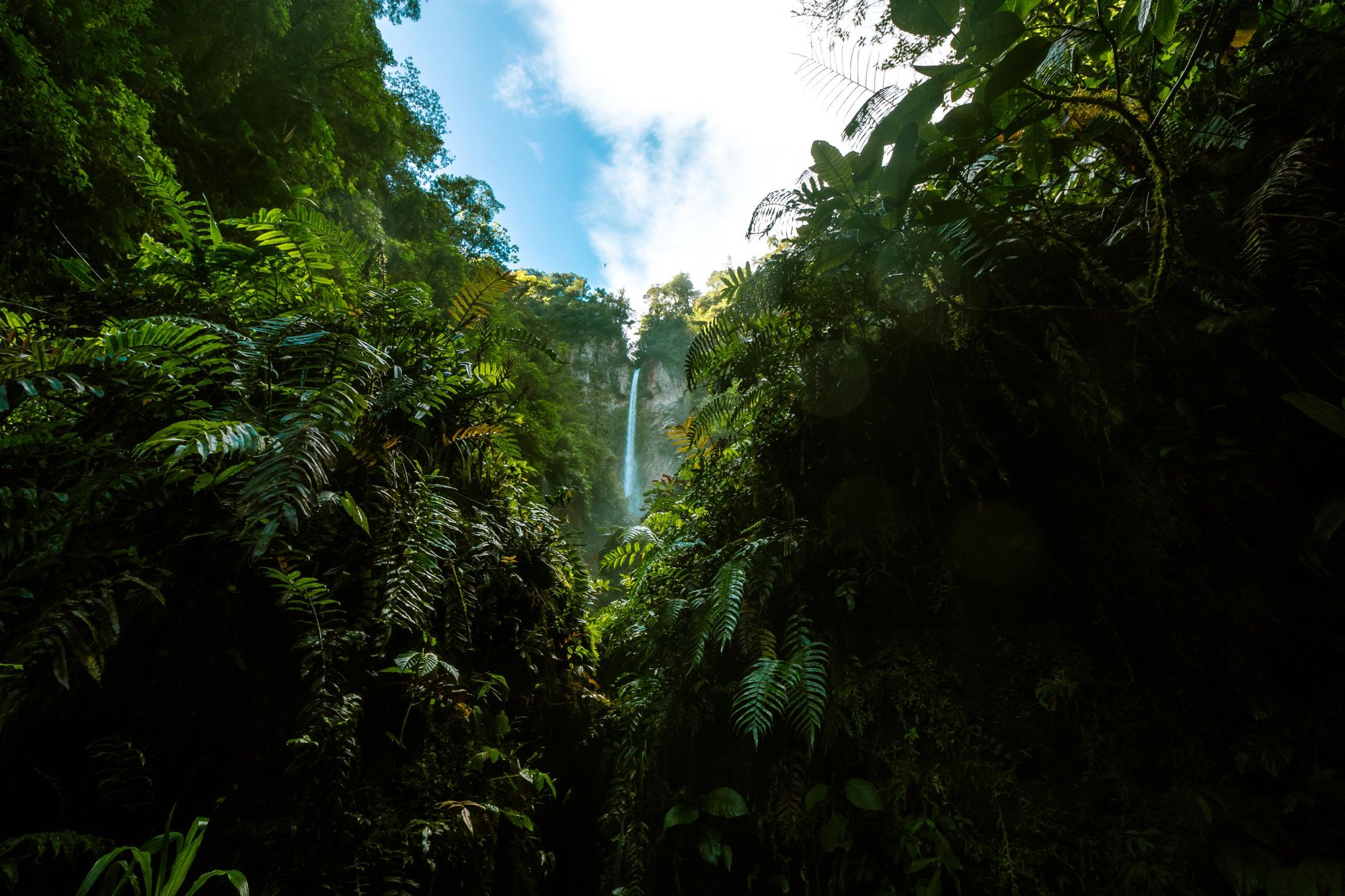
- Season: Rainy (Green) season
- Temperature: 32°C high, 117°C low
- Time zone: GMT-6
- Currency: Costa Rican Colón
- Best for: Crossing a continent
The Camino de Costa Rica is a relatively new, long-distance hiking route, inspired by the Camino de Santiago. It stretches 174 miles (280km) coast-to-coast in Costa Rica, taking you from the Caribbean coast on one side of the country to the shores of the Atlantic on the other - providing a rare chance to cross an entire continent.
Along the way, expert plenty of green, loud jungle, as you'd expect. Sloths crawl slowly around and frogs here are bright. Costa Rica is more diverse than most realise, though. You'll also be passing cooler, dusty mountain territories, and national park and indigenous land, where Cabécar people do the guiding.
How to Get There? Fly into Juan Santamaría International Airport, San José.
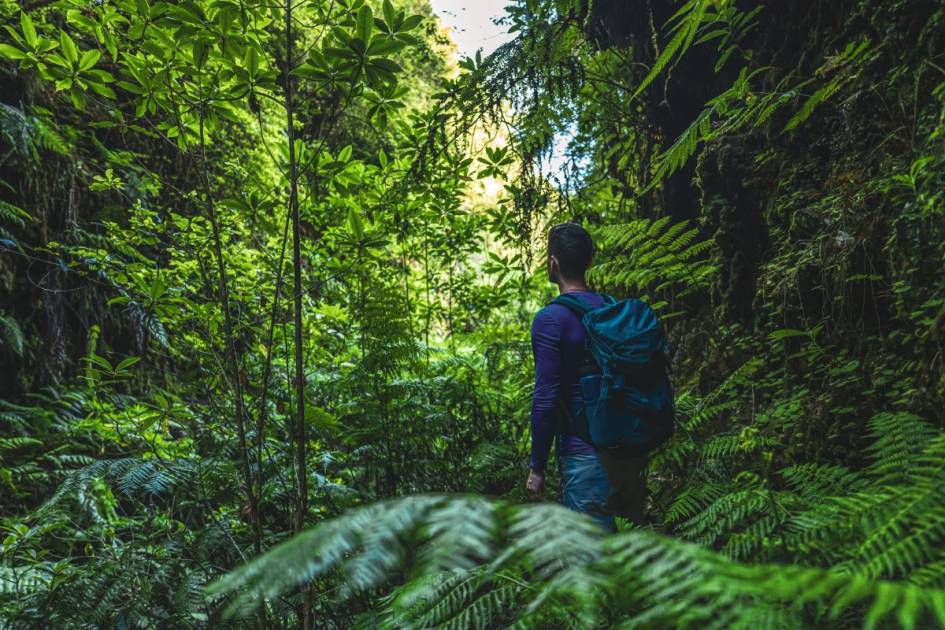
8. Theth, Albania
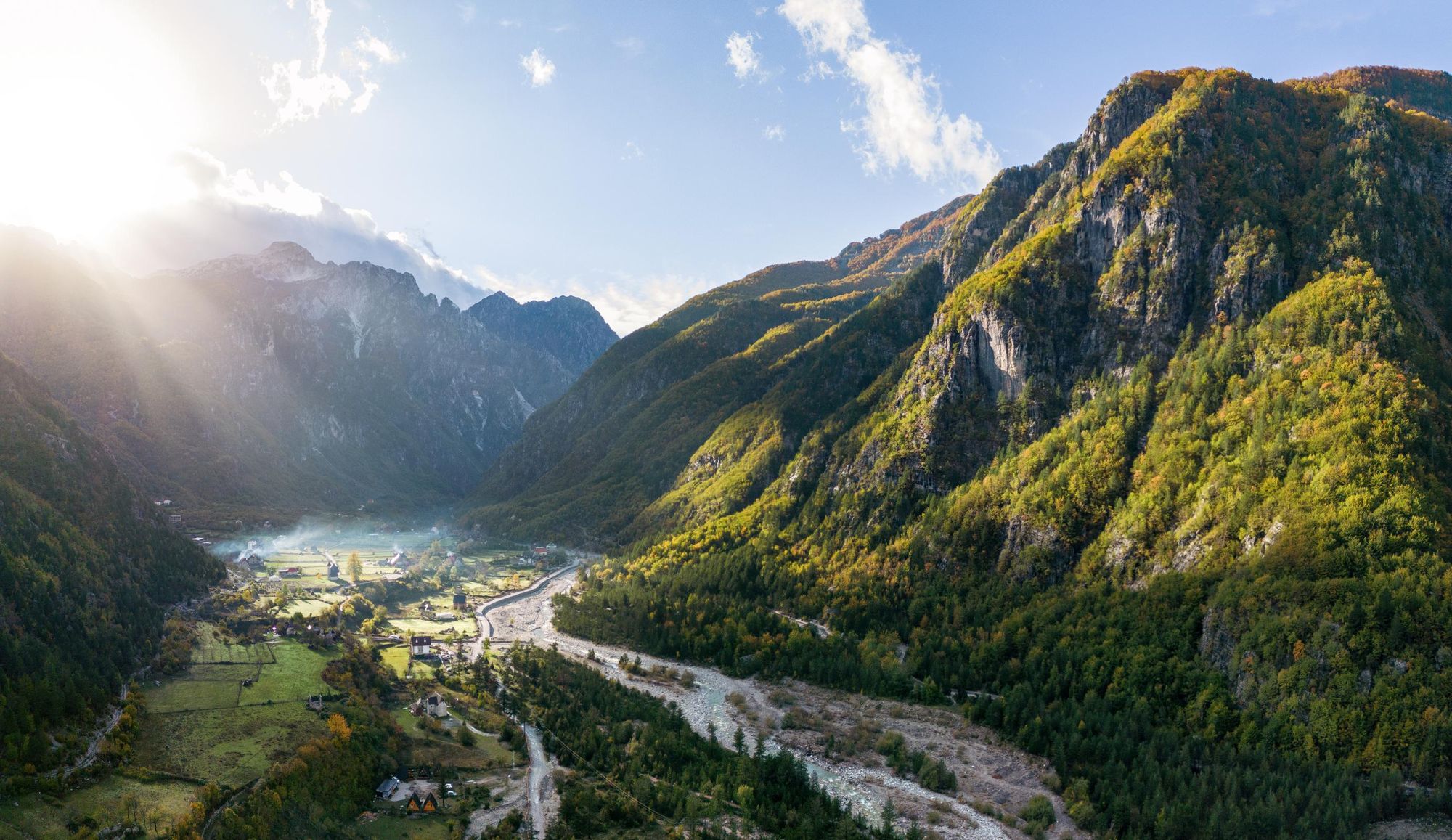
- Season: Summer
- Temperature: 28°C high, 10°C low
- Time zone: GMT+2
- Currency: Albanian Lek
- Best for: Off-the-radar hiking in Europe
Do me a quick favour and look at that picture just above. Look at the bulking, tree-covered mountains which flank the Shala River, which runs through this scene in Theth, and note the serrated, steep, sharp mountains which rise up behind it in the distance. Imagine that just around that riverbend is more of the same. Now, is this what you think of what you think of Albania? It should be. Because it is Albania.
That means you'll be climbing the high points of Albania, Kosovo, Montenegro and North Macedonia...
Known by some as the Albanian Alps and by others as the Accursed Mountains, this remarkable range is as beautiful as any other alpine setting in Europe, but it sees significantly less footfall. Word is catching on, but even in July you won't see as many folk hiking here as you'd get in the French Alps or the Dolomites.
If you're looking for a specific route to walk here, check out the Balkan 3 Peaks Challenge, a popular hiking route which will see you ascend Mt Gjeravica (2,656m/8,713ft), Mt Zla Kolata (2534m/8,313ft) and the shared summit of Mt Korab (2764m/9,068ft), That means you'll be climbing the high points of Albania, Kosovo, Montenegro and North Macedonia. Stick around in Theth after to relax in a dreamy alpine town, surrounded by peaks.
How to Get There? There’s an international airport in Tirana, from where you can drive or take a bus to Theth and the Albanian Alps.
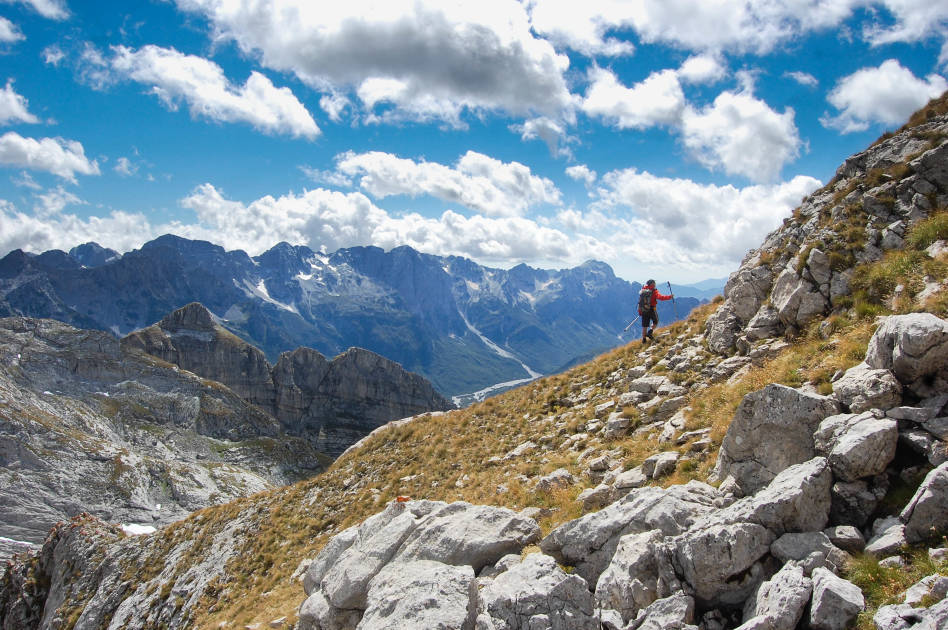
9. The Prosecco Hills, Italy
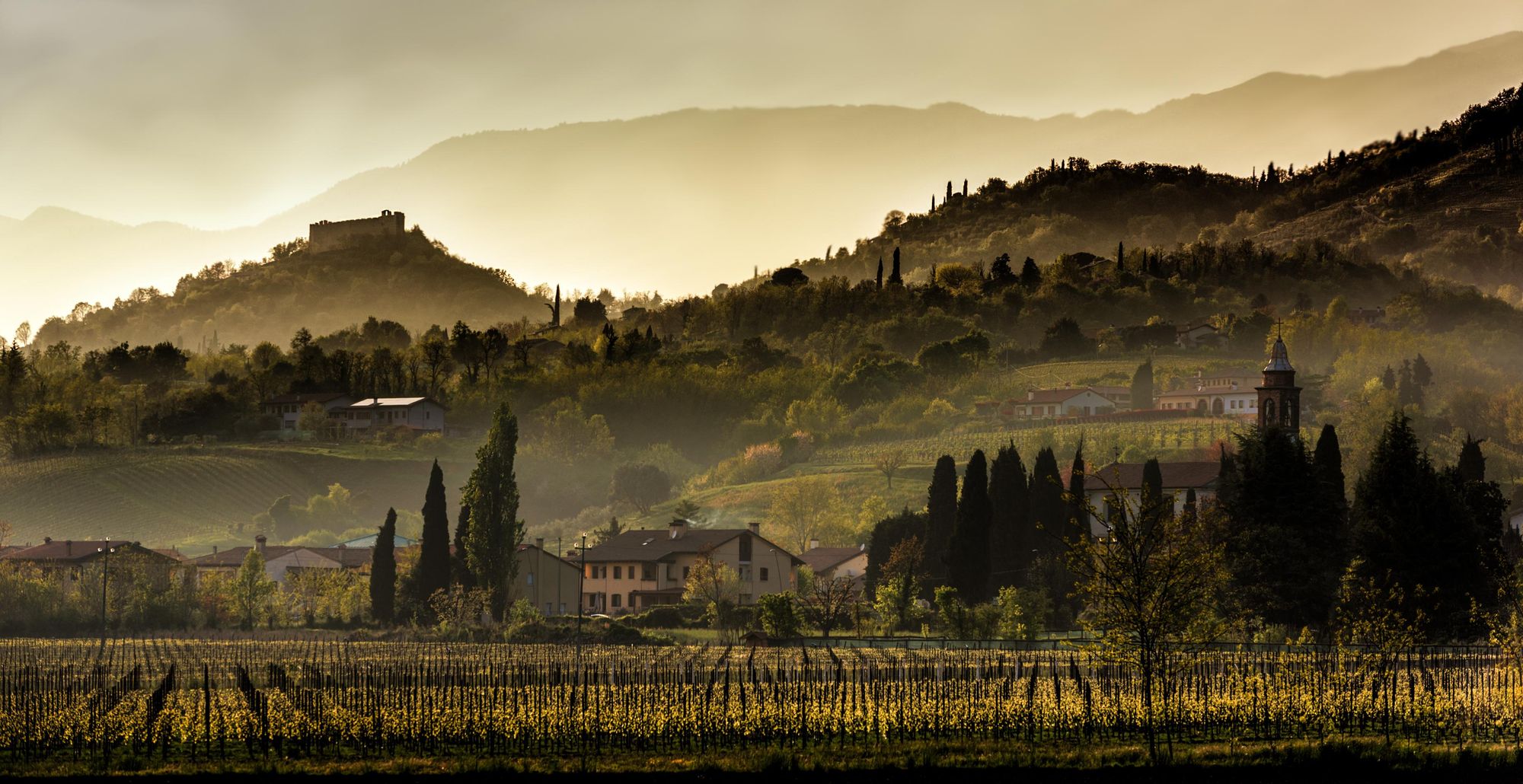
- Season: Summer
- Temperature: 29°C high, 18°C low
- Time zone: GMT+2
- Currency: Euro
- Best for: Combining nature and wine
July is summer and peak season in one of the world's favourite tourist countries - Italy. But while prosecco is also one of the world's favourite drinks, the place where it is made, the Prosecco Hills in the mountainous pre-alps, an hour north of Venice, remains strangely far from the radar of even well-travelled foodies.
By the Prosecco Hills, we mean the districts of Conegliano and Valdobbiadene, and both are outsanding areas to discover on bike or foot, cycling over rolling hills with mountain views, then rewarding yourself with the treat of another vineyard visit for doing so. “It's still an area to be discovered,” explains Vania De Paoli, a local guide. “There's a good mix between nature tourism, with quiet hiking and cycling trails to be explored, and of course there’s the wine and the sumptuous food.”
How to Get There? Typically people fly into either Venice Marco Polo Airport or Treviso Airport. From both, you can easily sort a shuttle bus in advance to get you to the Prosecco Hills area.

10. Durmitor National Park, Montenegro
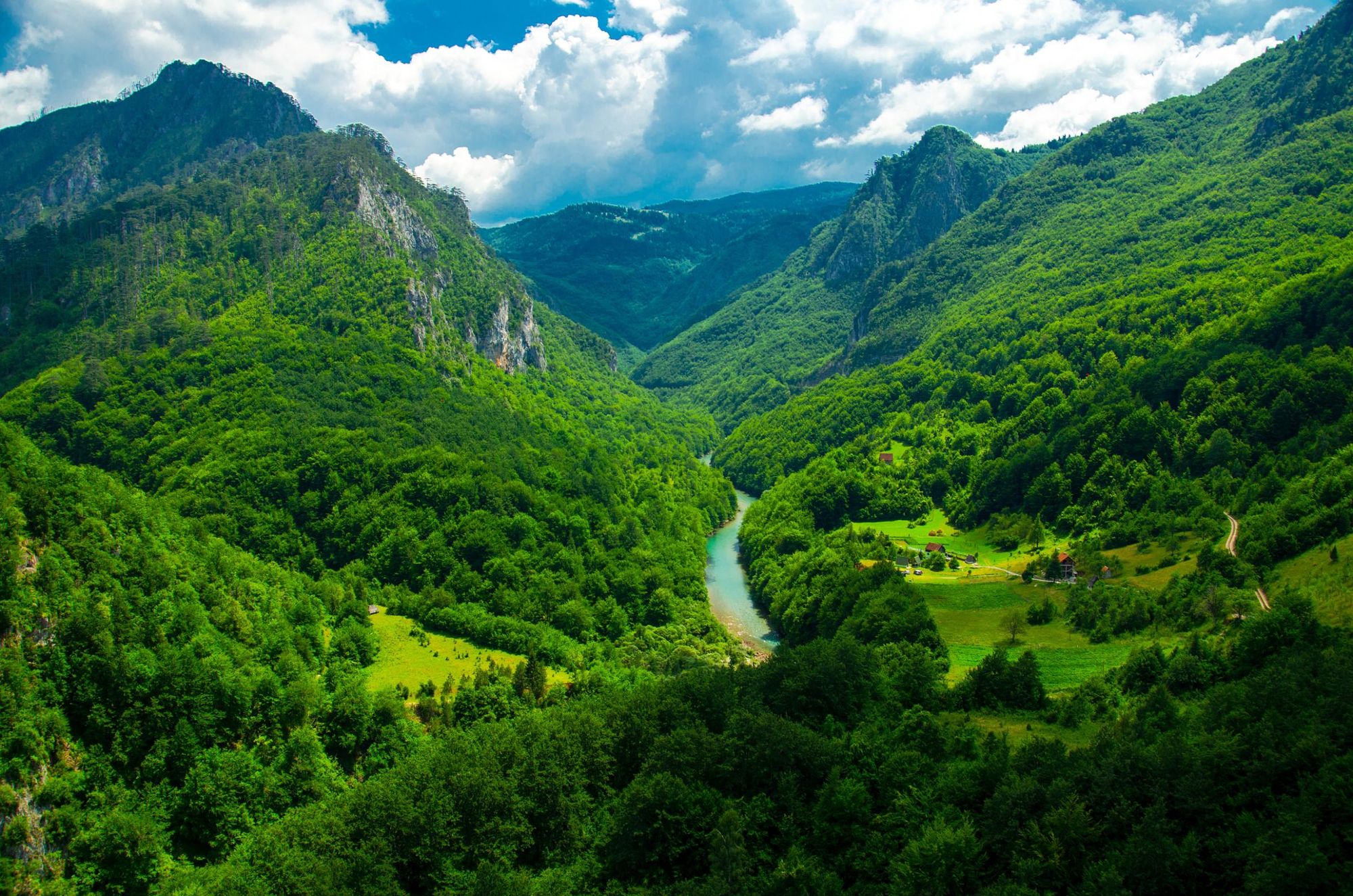
- Season: Summer
- Temperature: 35°C high, 19°C low
- Time zone: GMT+2
- Currency: Euro
- Best for: Lush, bright greenery everywhere
It's easy to fall in love with Montenegro, a country whose name translates as 'Black Mountain', giving it an immediate auro of adventure and mystery. It is a little funny it's called though, that, given how green this place is. If you like to immerse yourself entirely in a landscape which lives and breathe green - this is for you.
In the UNESCO-protected Durmitor National Park you’ll find glacial lakes, deep canyons and lush forests. Climb the highest peak of the Durmitor massif, Bobotov Kuk (2,523m/8,277ft), and you’ll earn unmatched, 360-degree views out over all of it. Packraft the Tara River Canyon, and you can wild camp in the forests, while spending your days navigating waterways which weave through tall mountains.
The history of Montenegro is a remarkable one - from the Romans to the Byzantine era, the Ottomans and the Venetians, there is a real depth to this country which few in western Europe know much about. Try delicacies including the Njeguški pršut (smoked ham) and čorba soups before you leave.
How to Get There? Start your adventure in Podgorica Airport, in the capital of Montenegro.
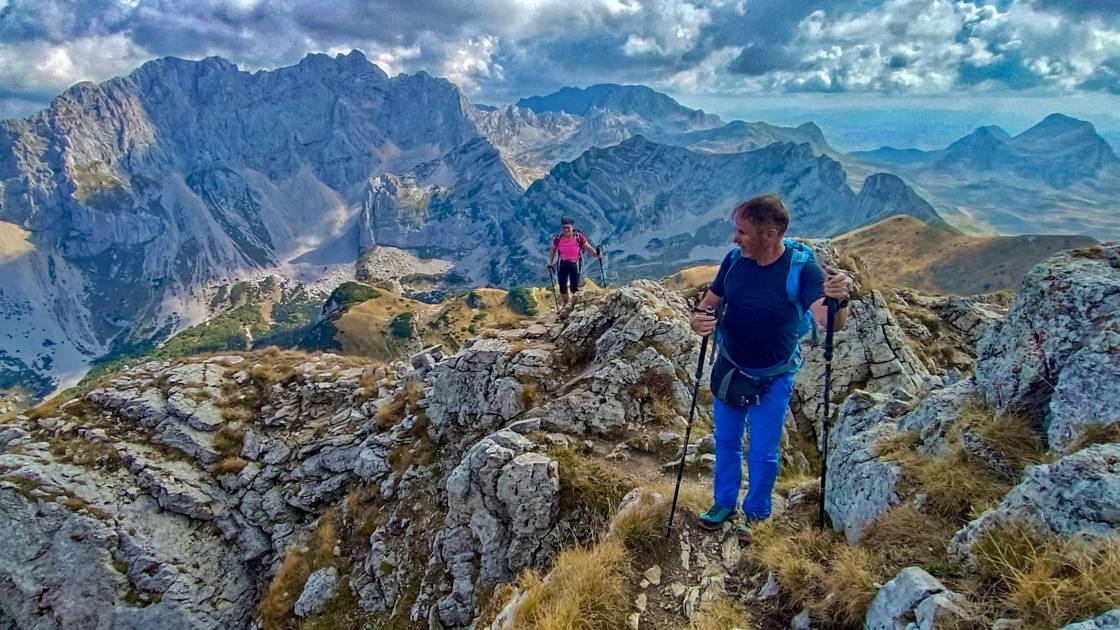
11. The Pindus Mountains, Greece
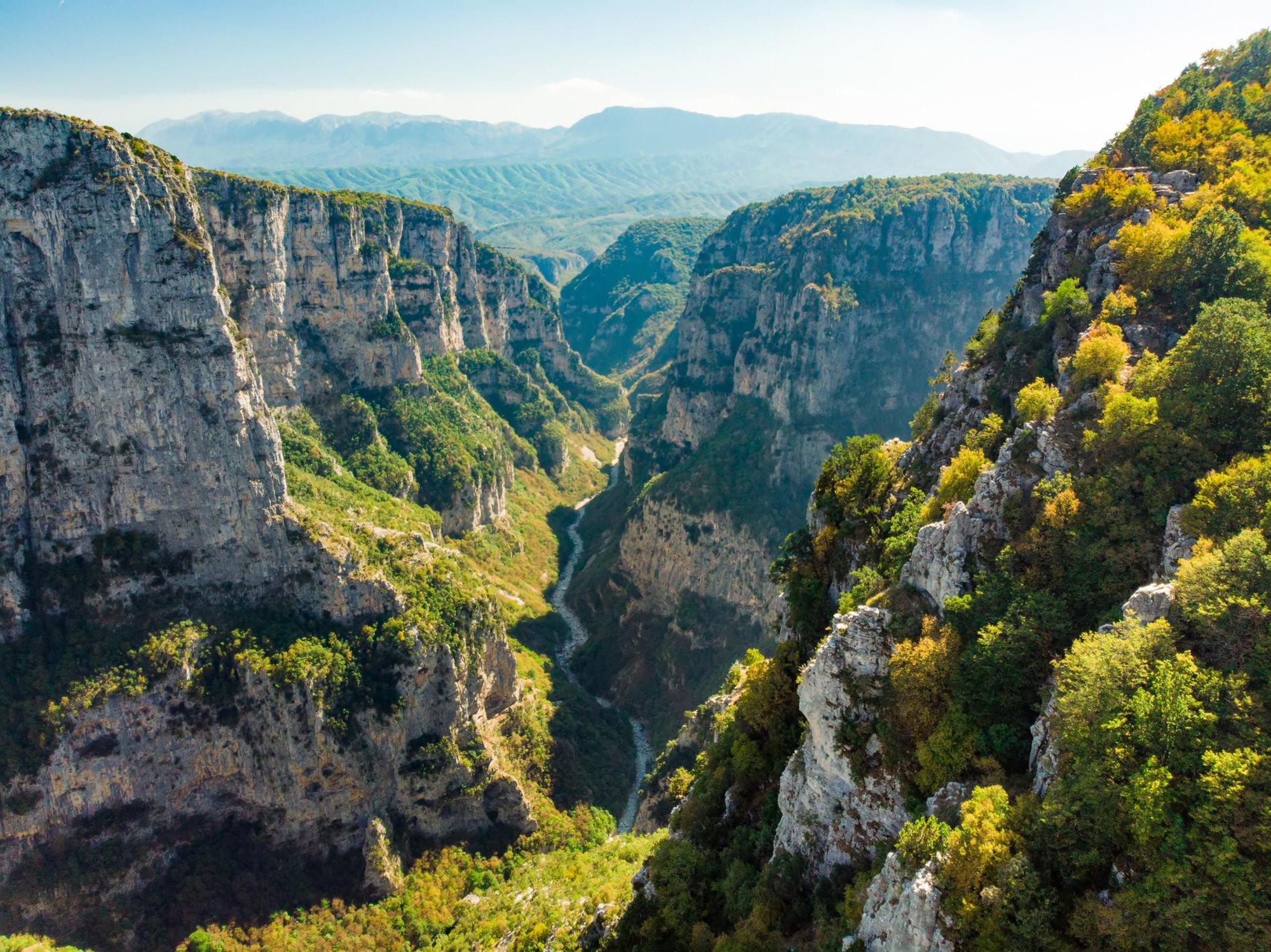
- Season: Summer
- Temperature: 28°C high, 12°C low
- Time zone: GMT+3
- Currency: Euro
- Best for: Tracking bears and forest hikes
Think of Greece in summer and you probably picture busy beaches, beautiful waters and frankly scorching temperatures. That's the south of Greece. Look to the north of Greece and you can find a much quieter scene - and a much more welcoming climate, to boot. The Pindus Mountains sit in the north of Greece, stretching partially into southern Albania. It's probably best known for the Vikos Gorge. The second deepest gorge in the world, it makes for superb hiking.
Lesser known is the fact that the Pindus are home to a small population of brown bears. There is excellent conservation work going on in the area and local guides run bear-tracking excursions, where you can head out and see bear scratch marks on trees, track the animals and see if you can catch a glimpse of them for yourself.
You can expect comfortable but warm weather and the Greek food is mighty fine.
How to Get There? The nearest international airports are in Athens or Thessaloniki.
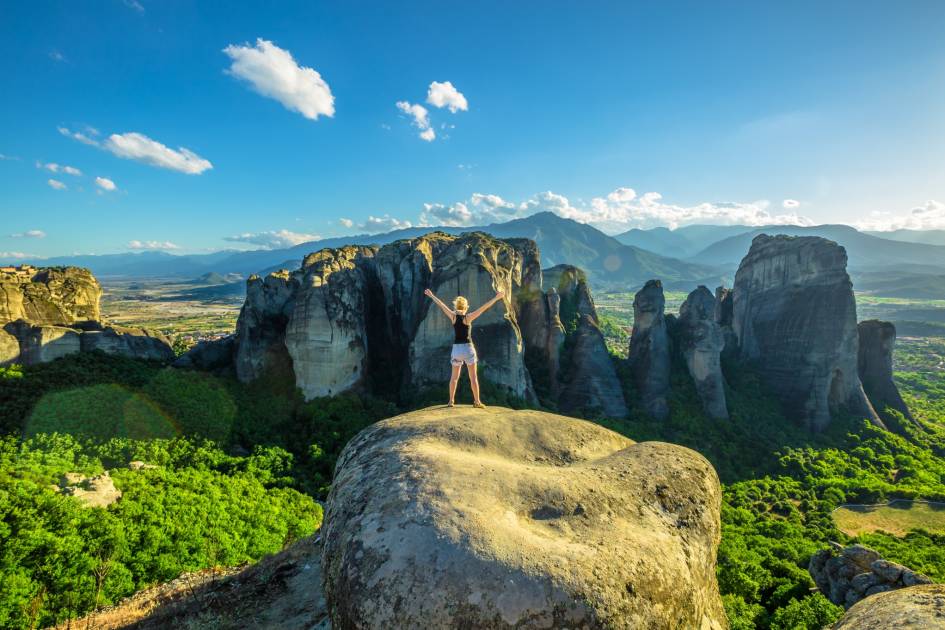
12. Teyuna (The Lost City), Colombia
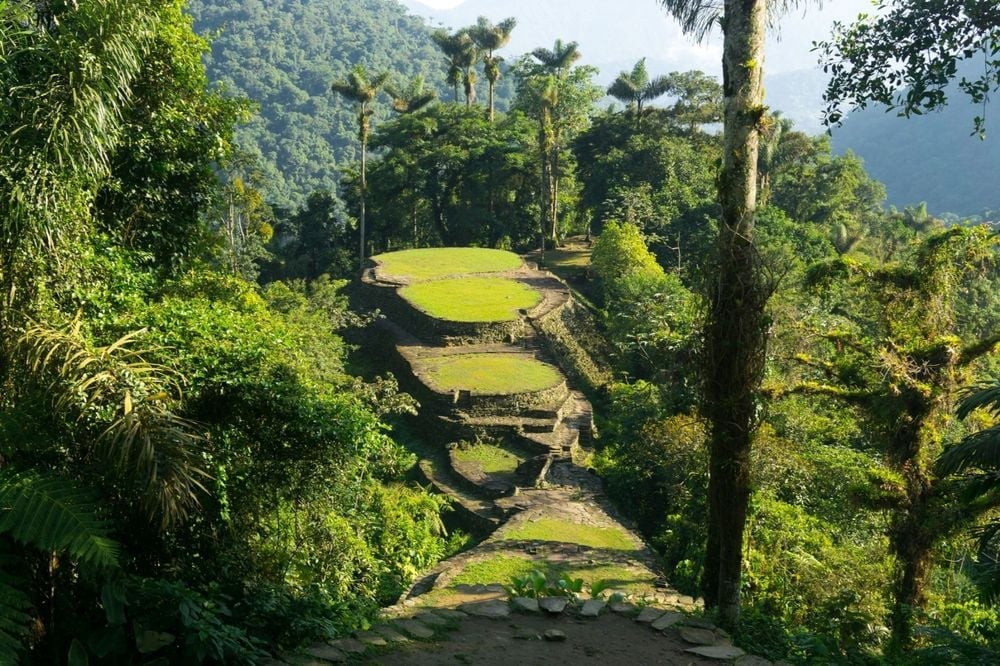
- Season: Wet/Dry season
- Temperature: 32°C high, 19°C low
- Time zone: GMT-5
- Currency: Colombian Peso
- Best for: Mixing jungle and archaeology
Commonly known as Ciudad Perdida (the lost city) in Spanish, the true name for this ancient architectural wonder, hidden away in the Sierra Nevada de Santa Marta jungle, is Teyuna. The ancient citadel, which is thought to have been built around 800AD, and as such pre-dates Machu Picchu, is reachable via a multi-day hike. Along the way, you'll pass farmland on your way into the jungle proper, where you might be lucky enough to spot red howler monkeys or tapirs.
You'll sleep in hammocks or bunk beds, in minimalistic but beautiful accommodation spots and eventually ascent to the citadel via a 1200 stone staircase which winds up through the forest. It's remarkable to think of the history of those stairs. From the plateau of teyuna you can see far out, over the forests.
When you leave the forest, recover on the Caribbean coast in Santa Marta.
How to Get There? Fly into the Simón Bolívar International Airport in Santa Marta.
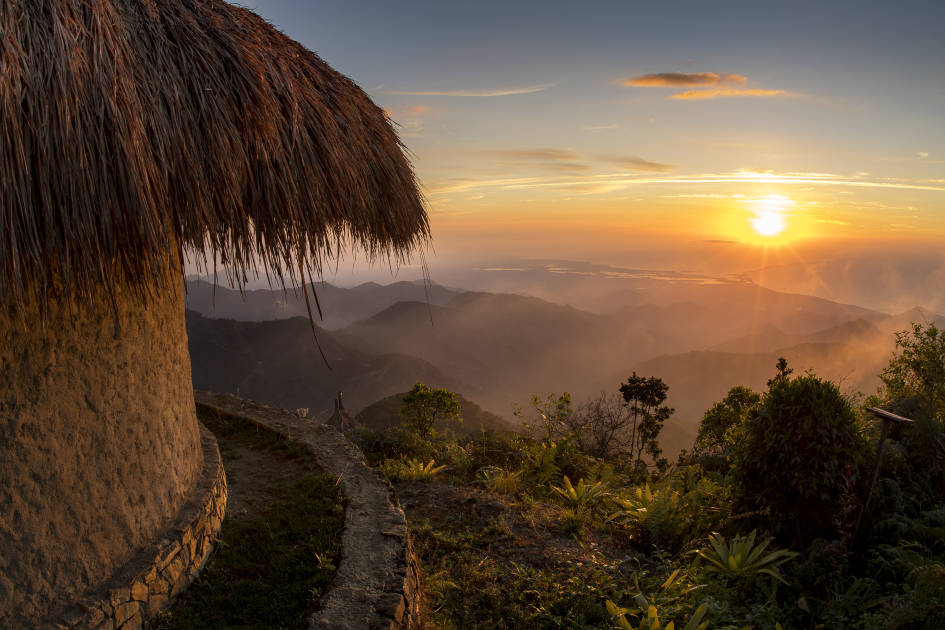
13. Tian Shan Mountains, Kyrgyzstan
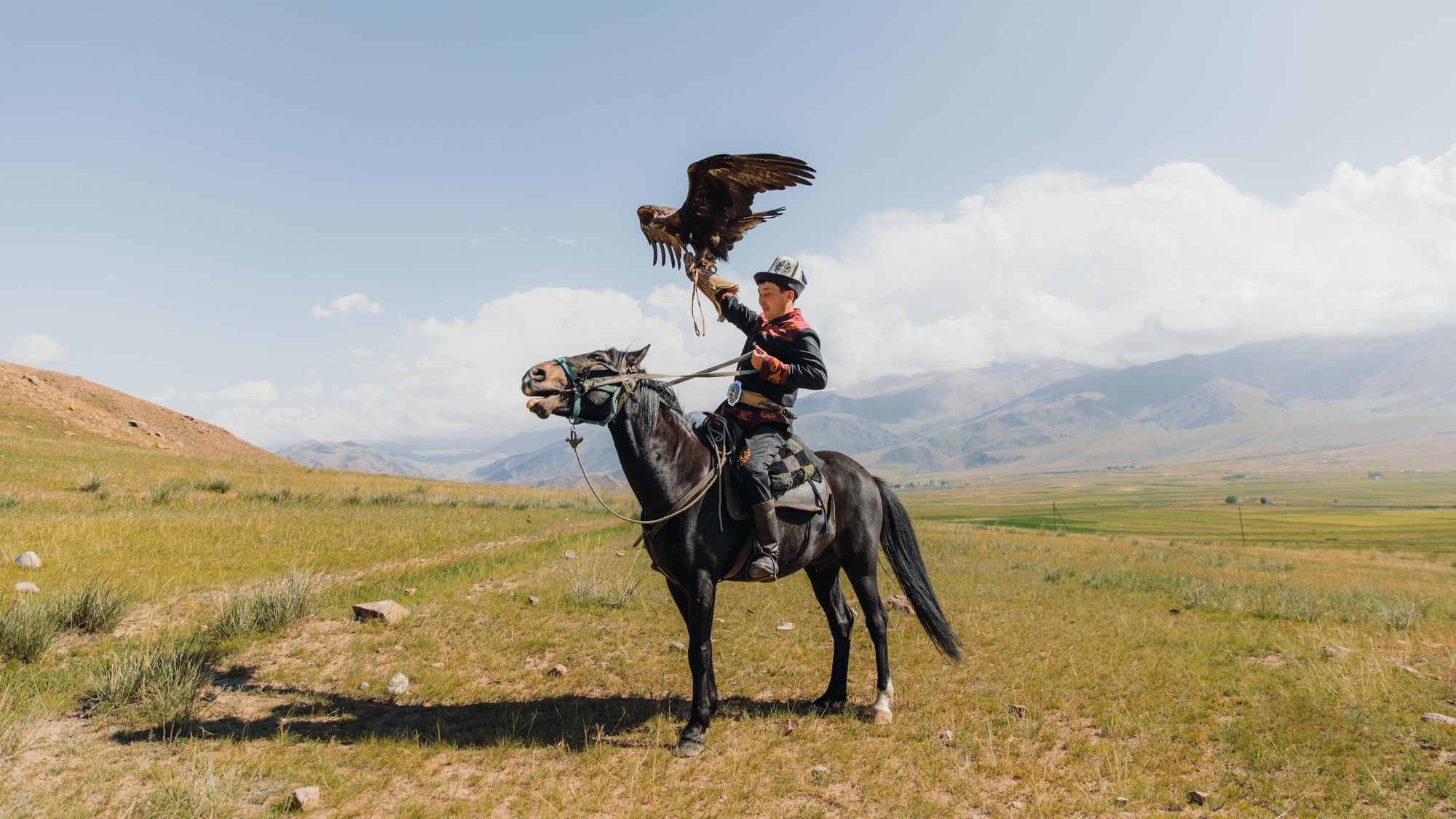
- Season: Summer
- Temperature: 25°C high, 10°C low
- Time zone: GMT+6
- Currency: Kyrgyzstani Som
- Best for: The truly intrepid traveller
Kyrgyzstan is a hard land to imagine for those who have not been; a place where nomadic life still continues, where eagles accompany hunting packs on horses, hospitality is enjoyed in yurts and of sprawling steppe is backdropped by the Tian Shan mountains. This is a country able to excite and amaze seasoned travellers.
This is the sort of place which can remind you what it can really mean to travel...
In terms of adventure, the limits are your own desires. You can kayak the Issyk Kul lake, hike the Skazka Canyon through otherworldly rock formations or trot along the Song-Köl lake on horseback. Hike to hot springs or commit to a long walk through the Jukky Valley. In July, the weather is ideal and the days are long. It's an ideal time to discover what life is like on these remarkable plains.
How to Get There? Fly into Manas International Airport in Bishkek. From here, there are domestic flights, buses and roads to the mountains proper.
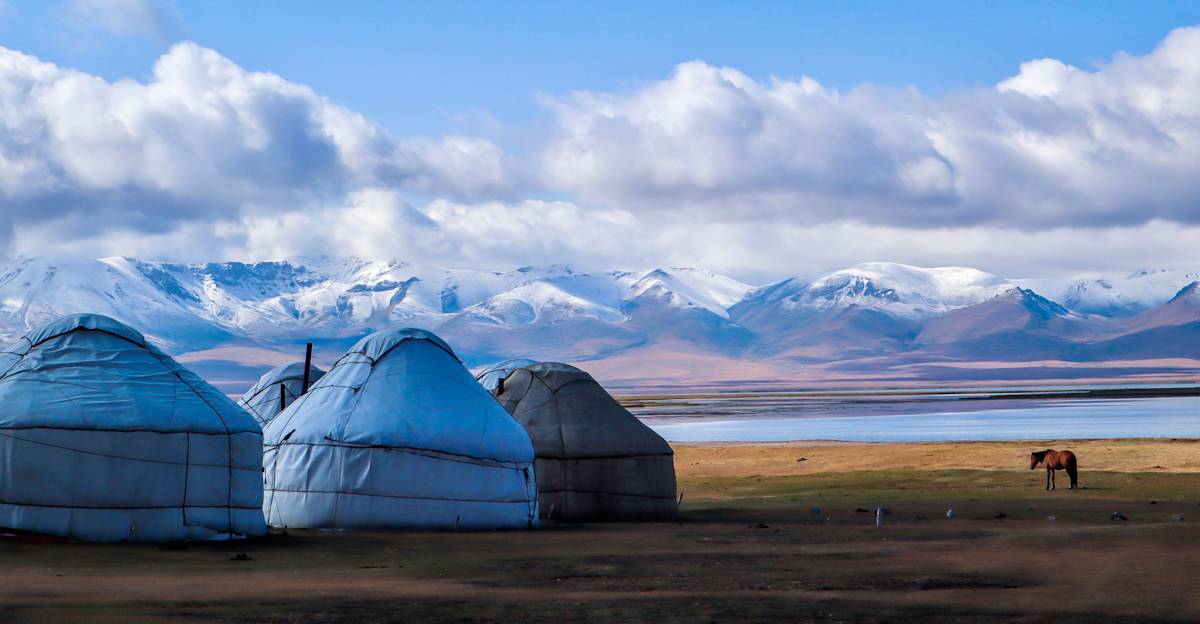
14. Visit Sri Lanka
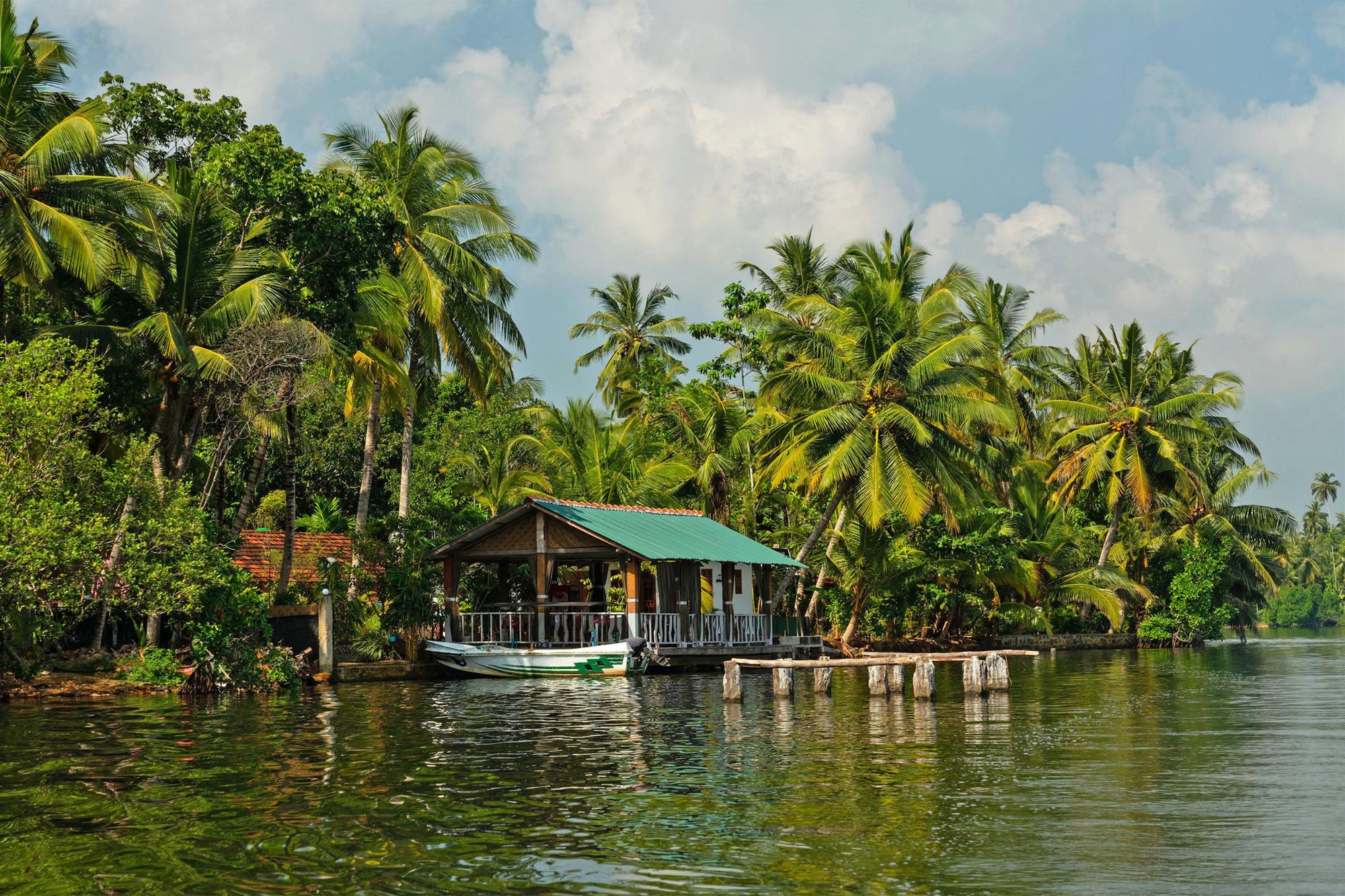
- Season: End of summer monsoon
- Temperature: 30°C high, 16°C low
- Time zone: GMT+5:30
- Currency: Sri Lankan Rupee
- Best for: Tea lovers and lush hiking
Sri Lanka is a country of rolling tea plantations, vast stretches of jungle and mountains. There is superb wildlife - purple-faced langurs, slender loris, wild elephants - and if don't mind the odd downpour of rain (something which keeps a lot of other travellers away at this time of year) then it's a wonderful time to visit.
Trek through the pristine forest of Gal Oya with the indigenous Vedda people at a time when the forest is alive, pungent and full of life. Look out for bathing elephants and colourful birds, and sample the Pekoe Trail, a fantastic long-distance route which goes through tea plantations and by waterfalls.
Be sure to take the famous train from Kandy to Ella before leaving - and climb the Lion Rock of Sigiriya, a place which combines history and natural beauty.
How to Get There? The main international airport in Sri Lanka is Colombo Bandaranaike.
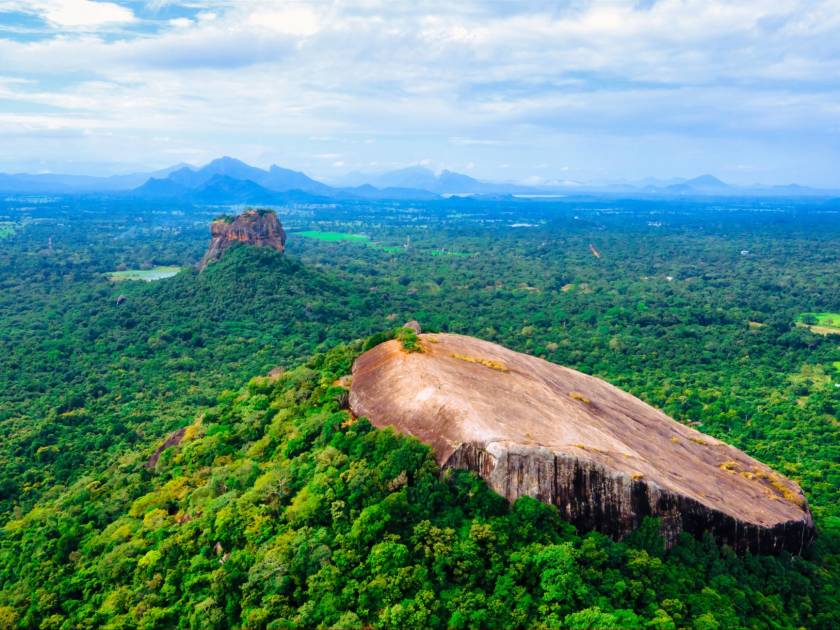
15. Costa Verde, Brazil
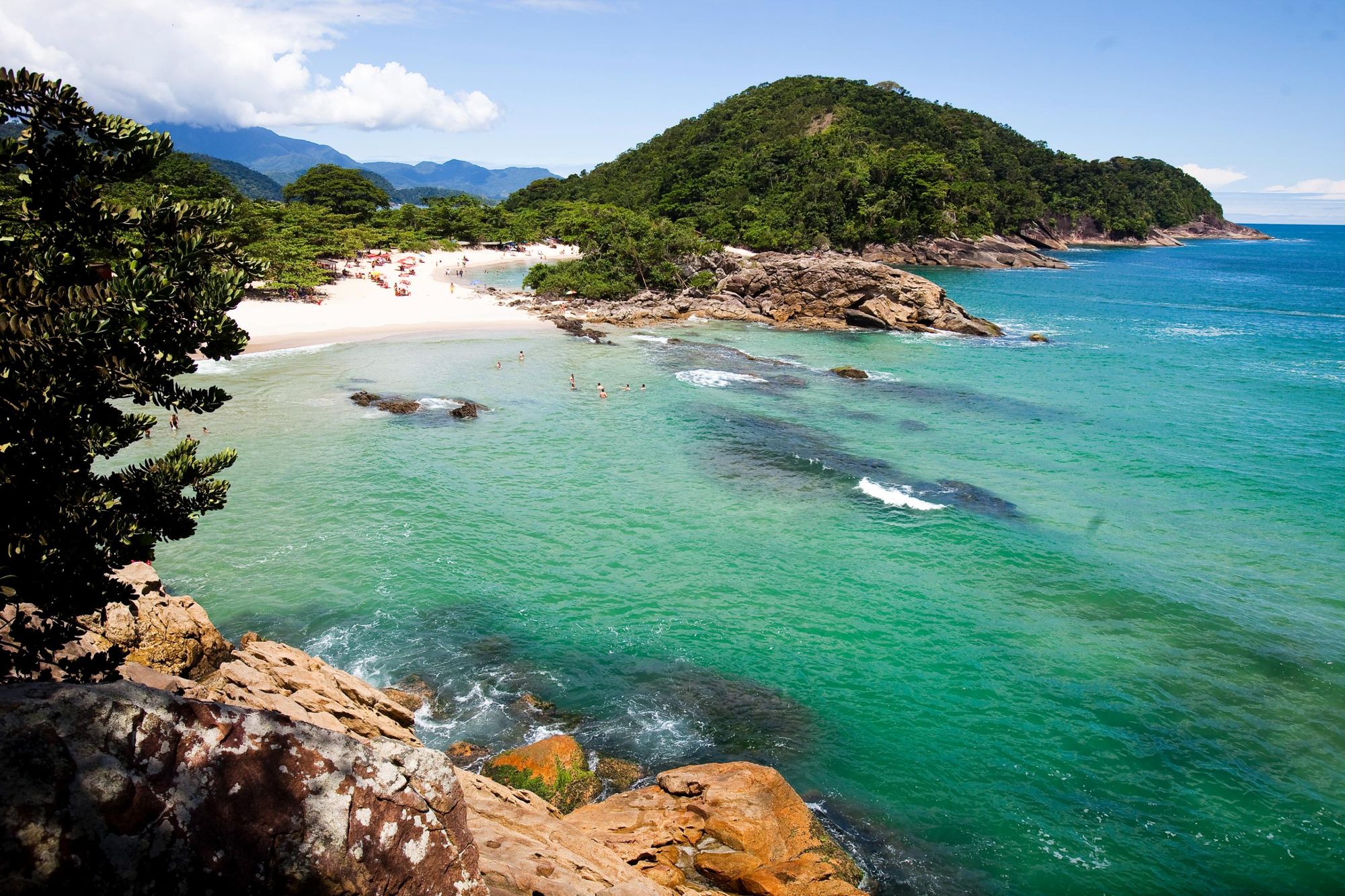
- Season: Winter
- Temperature: 28°C high, 15°C low
- Time zone: GMT-3
- Currency: Brazilian Real
- Best for: Mixing beach and rainforest
Brazil is a country so vast that it can be tough to know where to start exploring.
Arrive into Rio and it'll be hard to leave without spending a couple of days taking in this famous city. When you're done, consider heading out to the idyllic Costa Verde, where you can hike through vibrant, Atlantic rainforest, and combine it with relaxation time on quiet, sandy beaches and at hidden waterfalls.
When you're done, head back to Rio and watch the sun set from the top of the Sugarloaf Mountain...
Moving along the coastline, check out Lopes Mendes beach on the island of Ilha Grande, explore the cobbled streets of the UNESCO-protected Paraty and kayak amongst mangroves nearby. When you're done, head back to Rio and watch the sun set from the top of the Sugarloaf Mountain, and head down for Samba fun.
How to Get There? Start your adventure at Galeão International Airport, Rio de Janeiro.
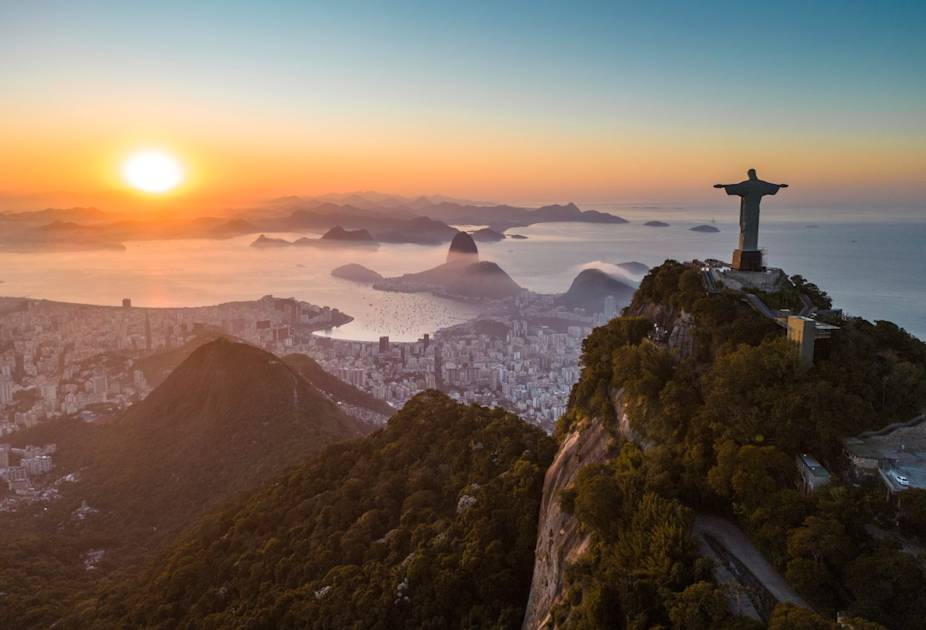
16. Svalbard, Norway
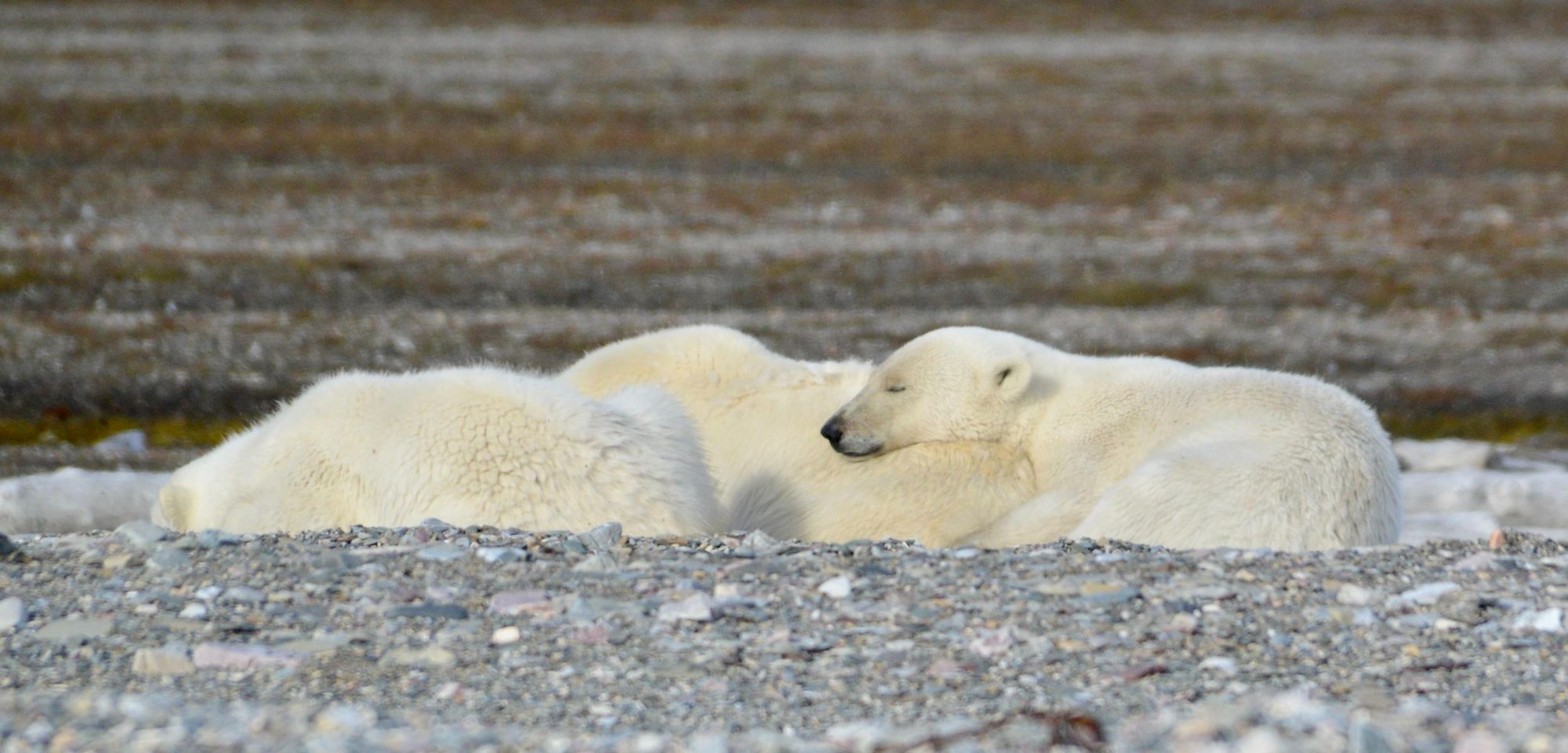
- Season: Summer
- Temperature: 10°C high, 2°C low
- Time zone: GMT+2
- Currency: Norwegian Krone
- Best for: Midnight sun and polar bears
Svalbard is a serious adventure destination. This is a place where, in July, the sun does not set - and so you'll be experiencing the midnight sun. That'll help if you're camping, as one of you will have to be on polar bear lookout.
With the daylight making all 24 hours visible here during summer, this is the best time of year to try and see a polar bear.
Jump in the kayak and you'll find yourself passing huge walls of ice, even at this time of year, looking out for whales and walruses. In terms of hiking, look at Sarkofagen Mountain, for a view of Arctic summer, or stick on the crampons and cross the Esmark Glacier.
With the daylight making all 24 hours visible here during summer, this is the best time of year to try and see a polar bear.
How to Get There? Fly into Svalbard Airport in Longyearbyen.

17. Greenland, Denmark
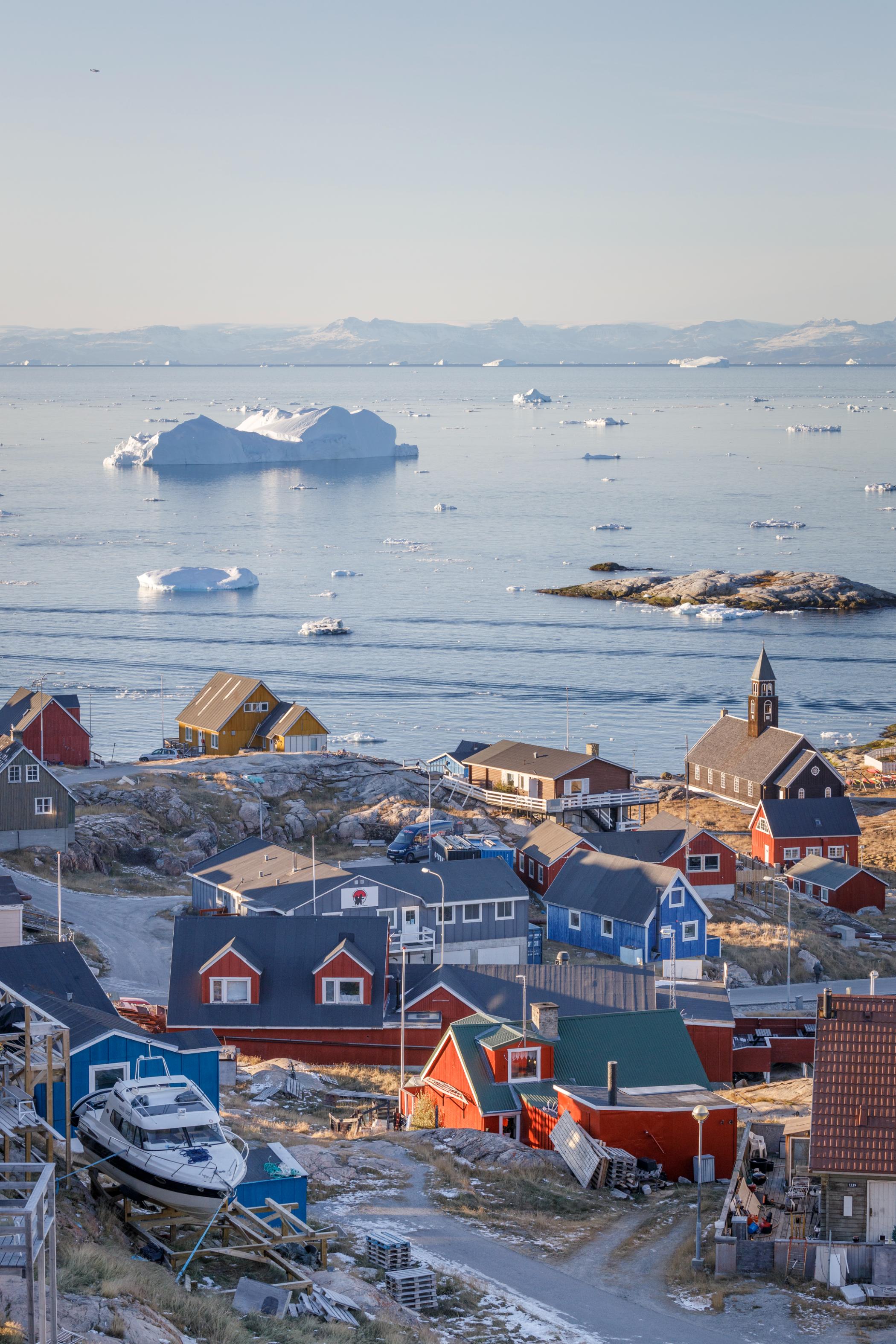
- Season: Summer
- Temperature: 15°C high, 5°C low
- Time zone: GMT-1
- Currency: Danish Krone
- Best for: A wilderness experience in Europe
If Svalbard sounded good but you're keen to really challenge yourself on a physical adventure, consider an 100km hike and kayaking expedition in Greenland.
You'll find yourself paddling amongst the looming icebergs of the Greenlandic fjords. If you're lucky, you'll be accompanied by seals, caribou and whales. You'll be able to see Inlandis, the polar ice cap, and hike across the craggy tongues of the immense Qaleralig Glacier. Camp among unspoilt wilderness in areas that will make you feel a million miles away from anywhere and gaze out onto some of the oldest ice masses on the entire planet whenever you unzip your tent.
How to Get There? First, fly to Keflavík International Airport, Iceland. This is where all international flights into Iceland arrive. From here, you'll connect and fly into Narsarsuaq airport which sits on Greenland.

18. Mount Kenya, Kenya
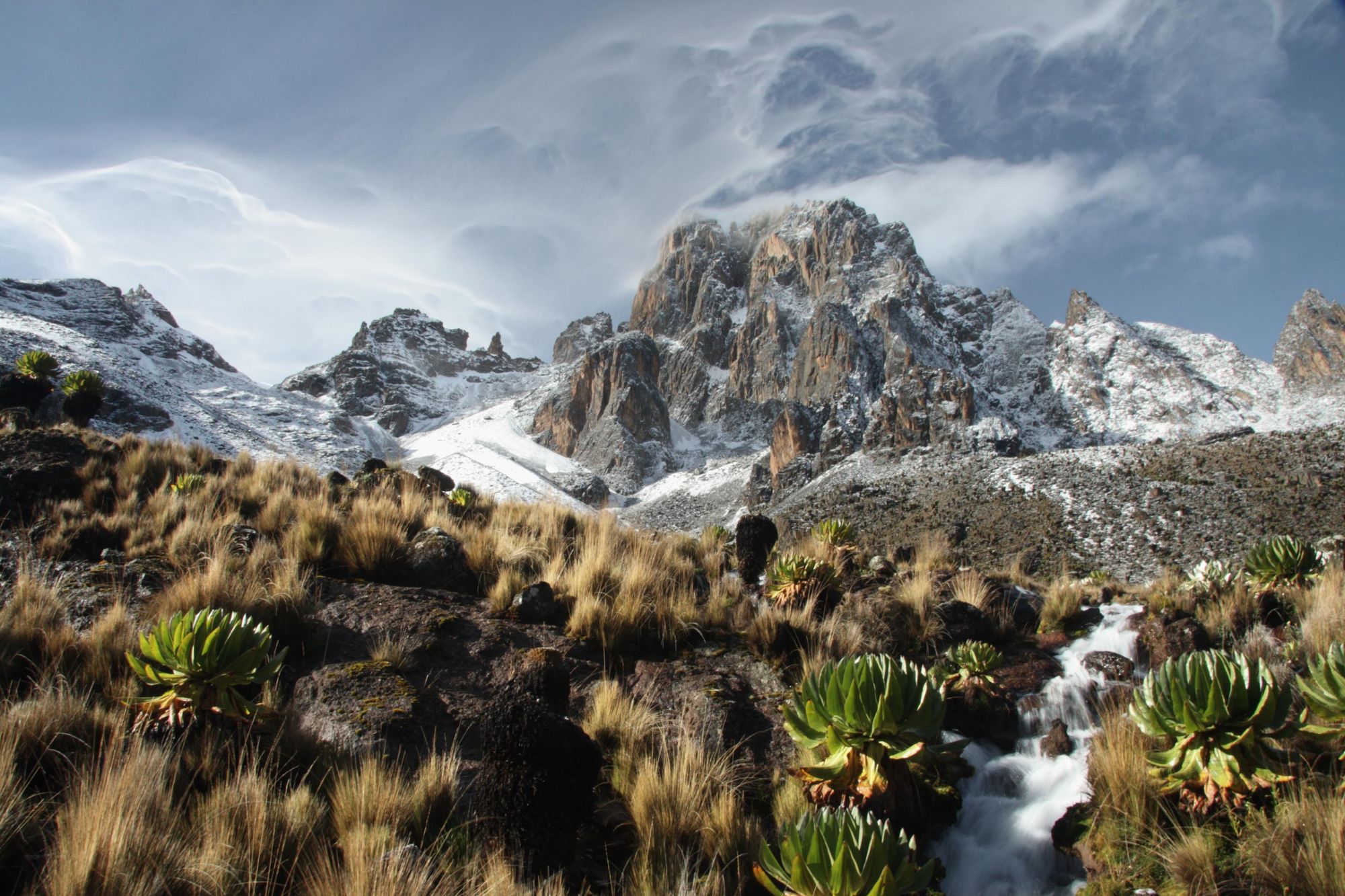
- Season: Dry season
- Temperature: 20°C high, 5°C low
- Time zone: GMT+3
- Currency: Kenyan Shilling
- Best for: Summit baggers with a sense of adventure
When most people think about mountain climbing in Africa, they think of Kilimanjaro. This isn't a bad thing. Kili is a legendary mountain, and a beauty to climb. But if you've either already been up it or you're looking for something less crowded, why not turn to Mount Kenya 5,199 meters (17,057 feet), the continent's second highest peak, instead?
This epic climb will take you through alpine forests, meadows, glaciers, lakes and landscapes that will make you think you've left this Earth. The trekking peak on the mountain is Point Lenana, looking out over all of Kenya.
This is a peak which not many people have climbed, and you still have the option to extend your trip and go on safari afterwards. We'd recommend heading into the Ol Pejeta Conservancy to spot elephants, lions, zebras, giraffes and rhinos.
How to Get There? Fly into Jomo Kenyatta International Airport, Nairobi to start your adventure, landing in the capital of Kenya.
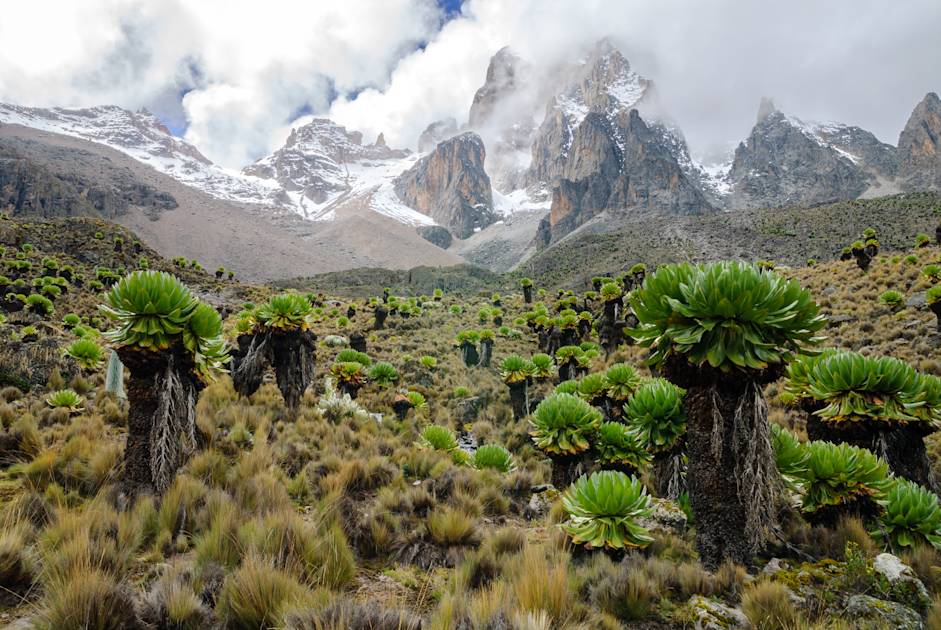
19. The Caucasus, Armenia
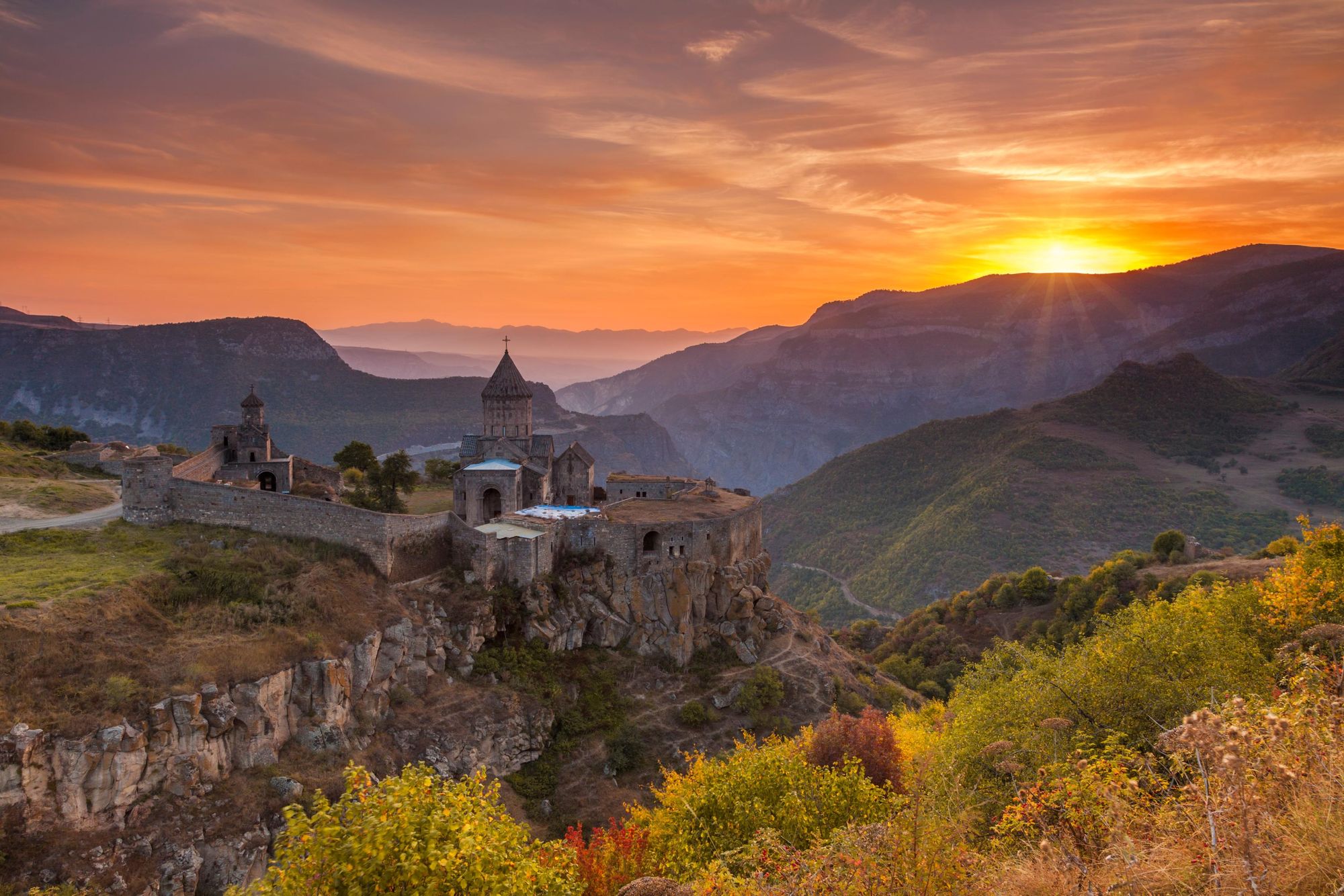
- Season: Summer
- Temperature: 34°C high, 15°C low
- Time zone: GMT+4
- Currency: Armenian Dram
- Best for: Mixing culture, history and hiking
There is perhaps no country in Europe with so much adventure potential, but no little known, as Armenia. The valleys here are dramatic, the gorges deep and crossed on swinging suspension bridges, the native forests are wild and many untouched, and the summits are enormous. Head to Mount Aragats and you can tackle a 3,888m (12,755ft) mountain. Move on to the Lake Sevan for a wild swim and revel in the thrill of whitewater rafting in Tumayan.
There is history in these mountains. Visit the ancient monasteries of Khor Virap and Tatev and stop off in villages backdropped by snowy peaks, where tourists are still a rarity. You shouldn't visit Armenia without dedicating some time to the culture here, too. This city of Soviet-era architecture now has a vibrant food and drink scene, and Armenian wine is now really coming to the fore.
How to Get There? Fly into Zvartnots International Airport in the capital, Yerevan.
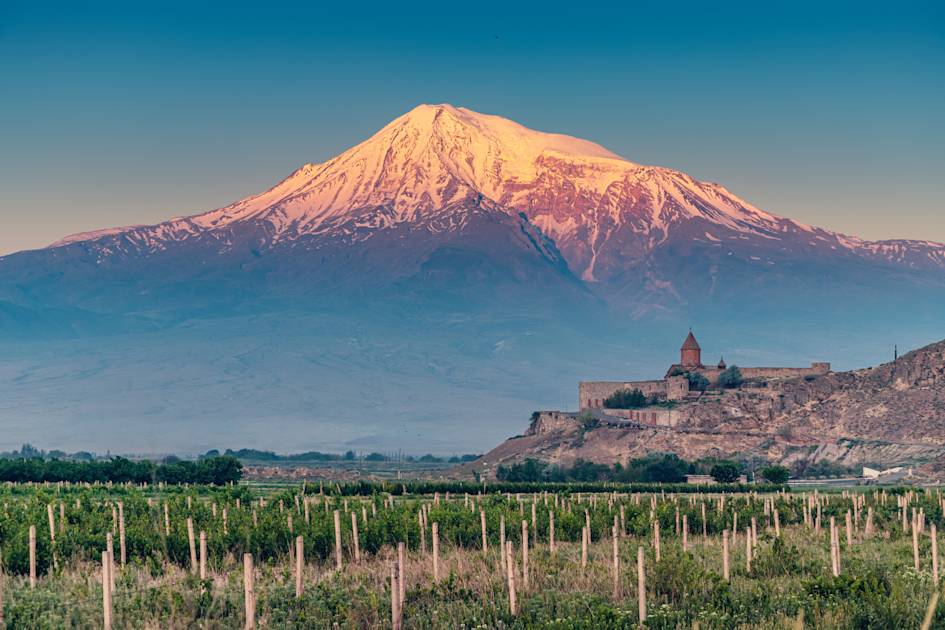
20. The Hidden Coves of Crete
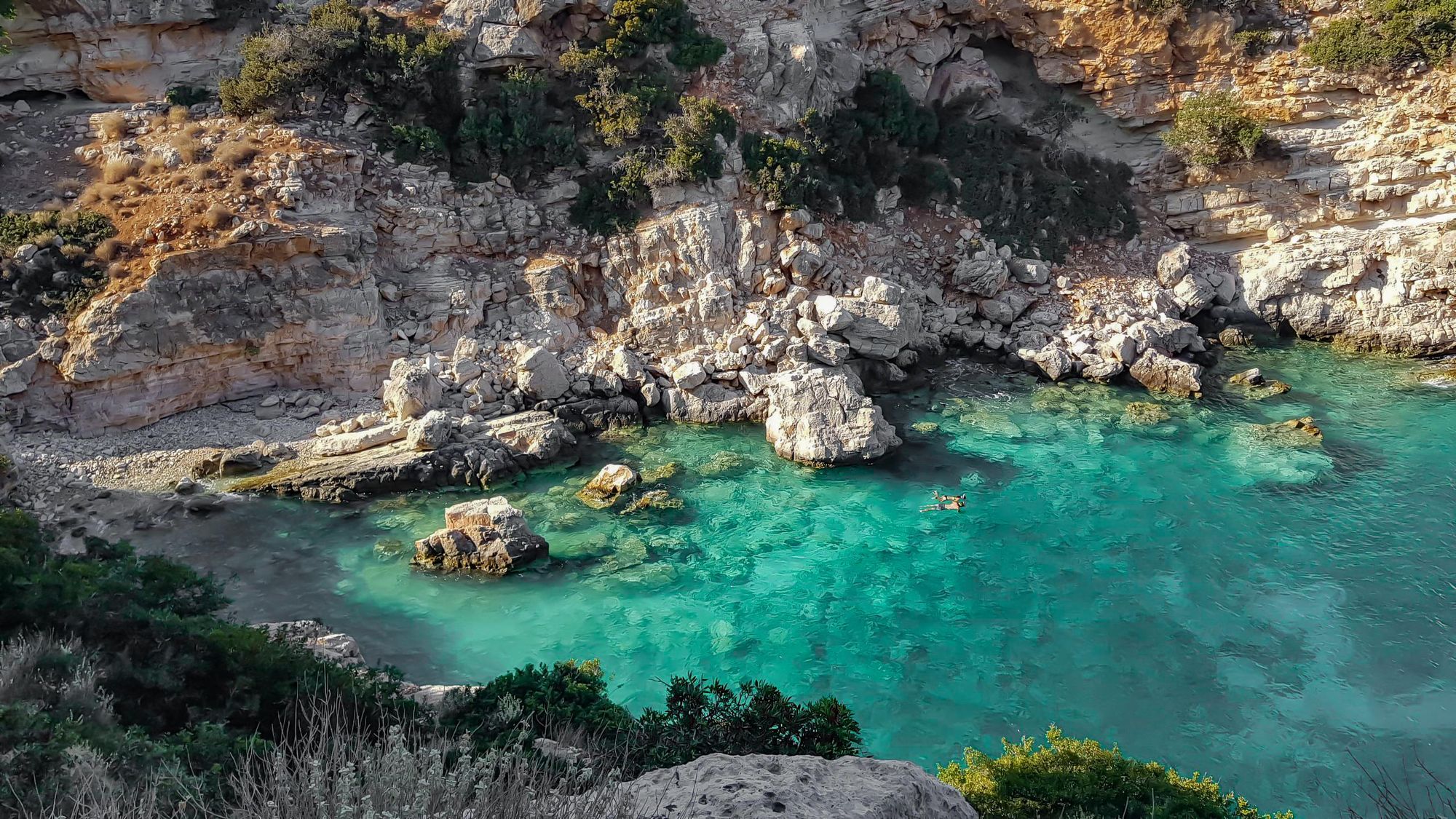
- Season: Summer
- Temperature: 34°C high, 18°C low
- Time zone: GMT+3
- Currency: Euro
- Best for: A pure island adventure
Crete? In the height of summer? We know what you're thinking. But we are not recommending you check in to an all-inclusive resort and sit for a week drinking cocktails next to the pool. Rather, we're highlighting that beyond the crowds and summer cliches, Crete is home to some of the best wild swim spots in Europe.
There are so many remote wild swim spots on Crete, from sea pools and lagoons to quiet bays...
There are a genuine abundance of remote wild swim spots on Crete, from sea pools and lagoons to quiet bays. A few favourites being the turquoise water of Kissamos Bay and Cape Crow, where you can wild swim with a rugged, rocky background.
Open water swimmers will want to take on the 2.2-mile (3.7km) swim out to Limpet Island, completing what is known as the Falasarna Triangle. And if you fancy exploring the mainland, head to Sirikari or Kampos Gorge for hiking.
How to Get There? Fly into Heraklion Airport or Chania Airport on the island of Crete. You can also reach the island by ferry from Athens, the capital of Greece.

Inspired? Check out our full range of adventure holidays in July now!

